Chemistry and Chemists № 2 2024
Journal of Chemists-Enthusiasts
| Content | Chemistry experiments - video | Physics experiments - video | Home Page - Chemistry and Chemists |
|
Chemistry and Chemists № 2 2024 Journal of Chemists-Enthusiasts |
Dissolution of copper in citric acid - part 4 Volodymyr M. Viter |
|
Having noticed a mistake in the text, allocate it and press Ctrl-Enter
The next experiment that can be carried out with copper citrate obtained in the first part of the article is the reaction with zinc metal. The copper citrate solution contained excess citric acid, which could react with the zinc also.
I poured 10 ml of the copper citrate solution into a small glass and added four zinc granules. The active formation of hydrogen bubbles began immediately. The surface of the zinc began to be covered with a dark coating (metallic copper was deposited on the surface of the metal). The release of gas increased over time, and hydrogen bubbles began to tear off black copper particles from the surface of the zinc. Over time, the copper coating became like a brown sponge, which separated from the surface of the zinc and formed a voluminous precipitate at the bottom. The colour of the solution began gradually changing from emerald green to light brown. The release of hydrogen weakened but did not stop even after a day. The solution nearly became discoloured due to the reduction of Cu2+ cations to copper metal, but then the liquid became turbid white. Later, a white precipitate formed. It is probably zinc citrate. After the formation of the precipitate, the solution acquired a yellowish tint. Thus, zinc metal displaced copper from the citrate. In parallel, a reaction of zinc with citric acid occurred. After the experiments, a little copper citrate solution remained in the flask. I poured it into a Petri dish so that the solution gradually evaporated and crystals of copper citrate and citric acid formed. The crystals turned out not beautiful. In the case of copper acetate, the crystals formed after the solution evaporated were much more pretty. |
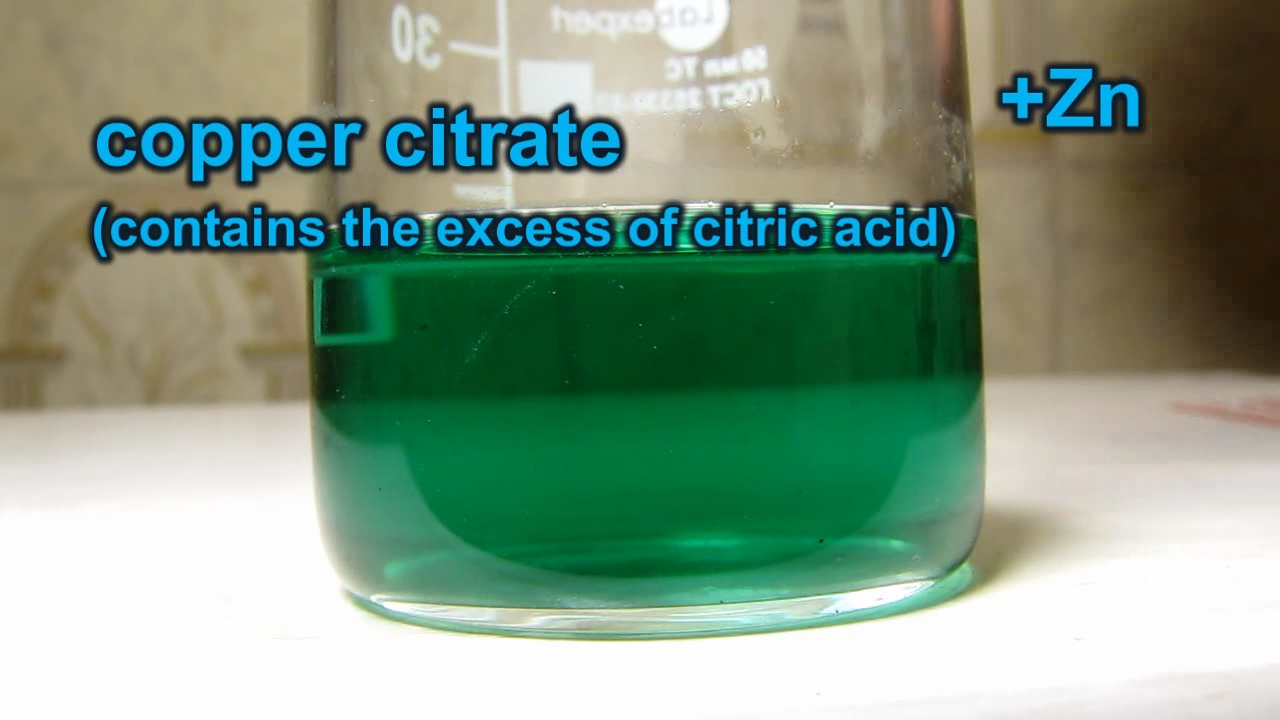
Reaction of copper citrate with zinc metal |
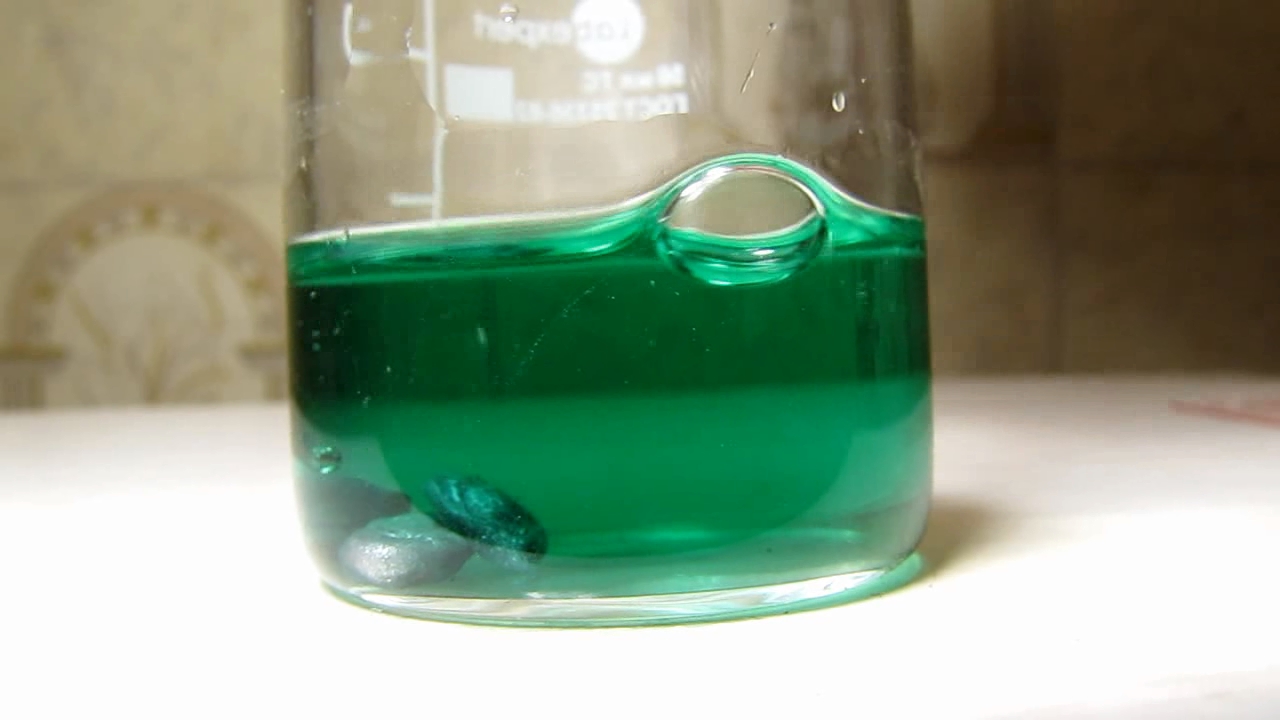
|
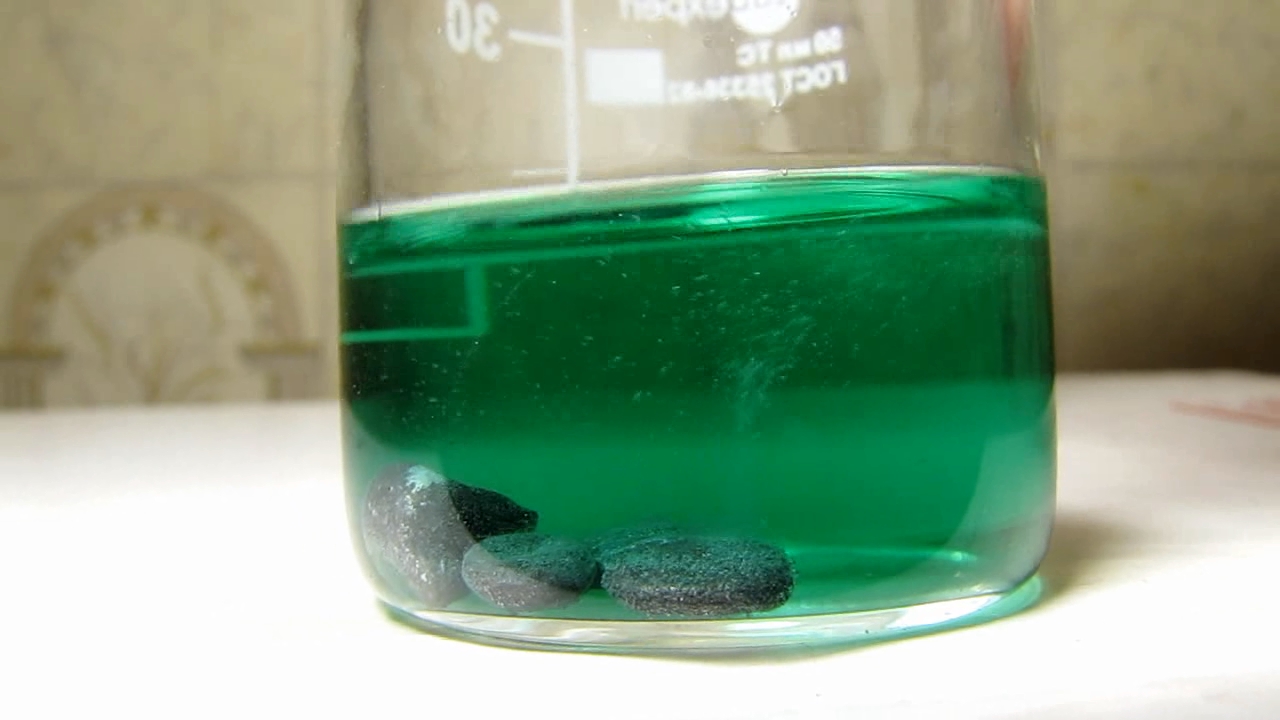
|
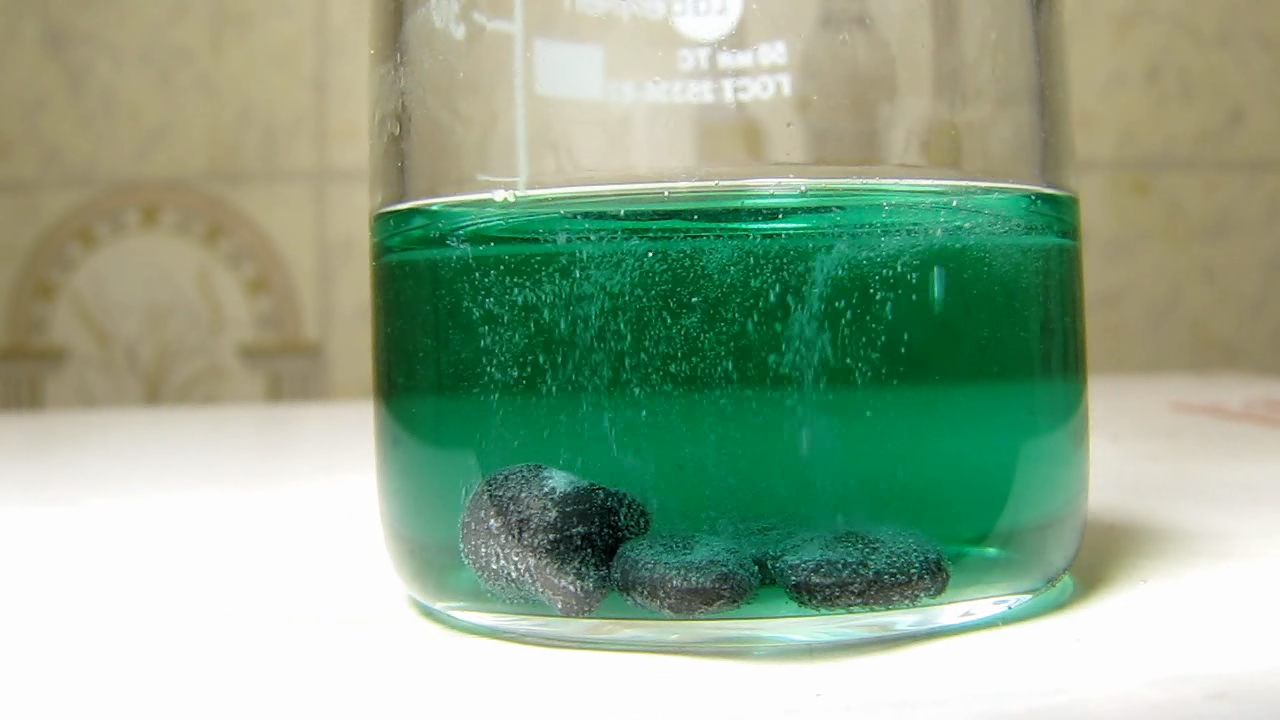
|
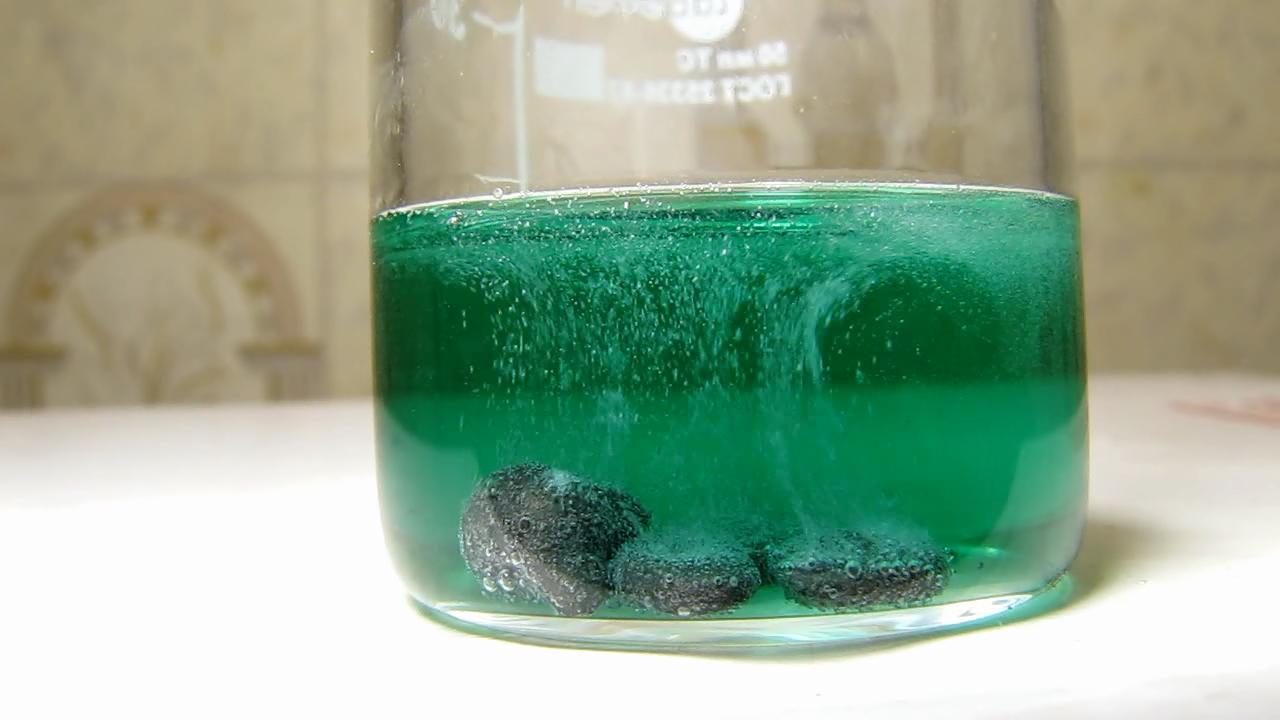
|
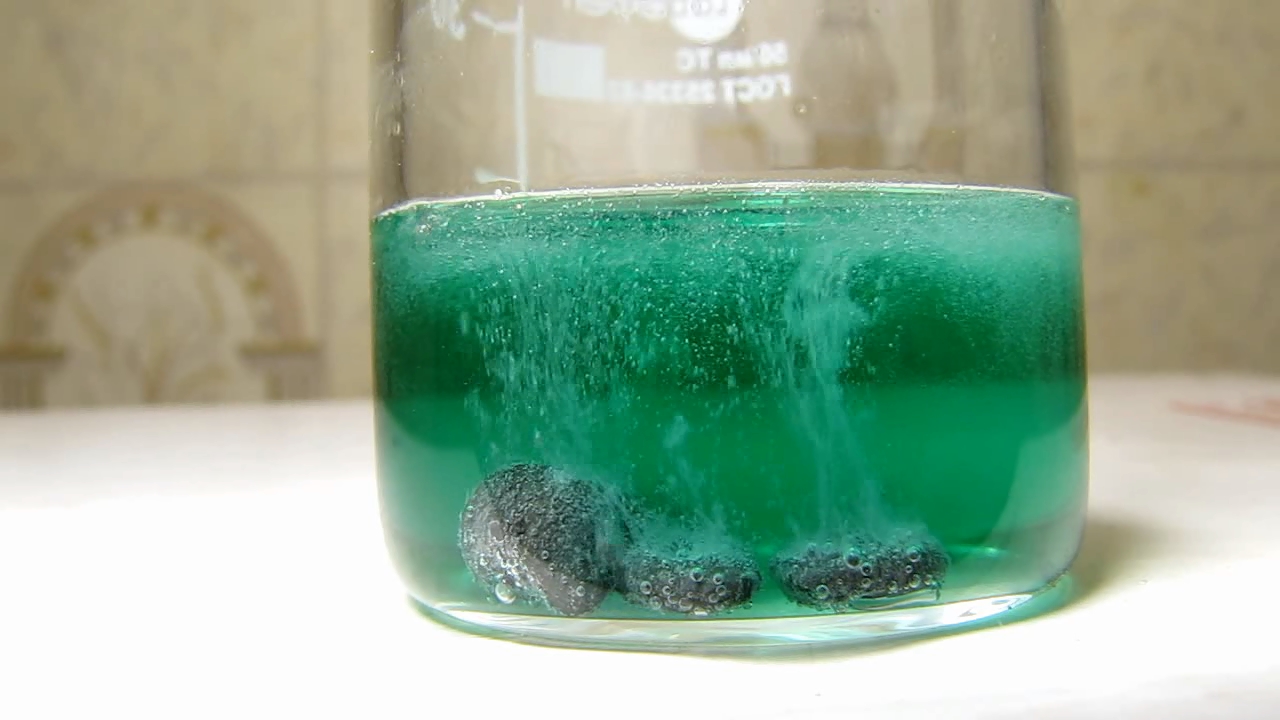
|
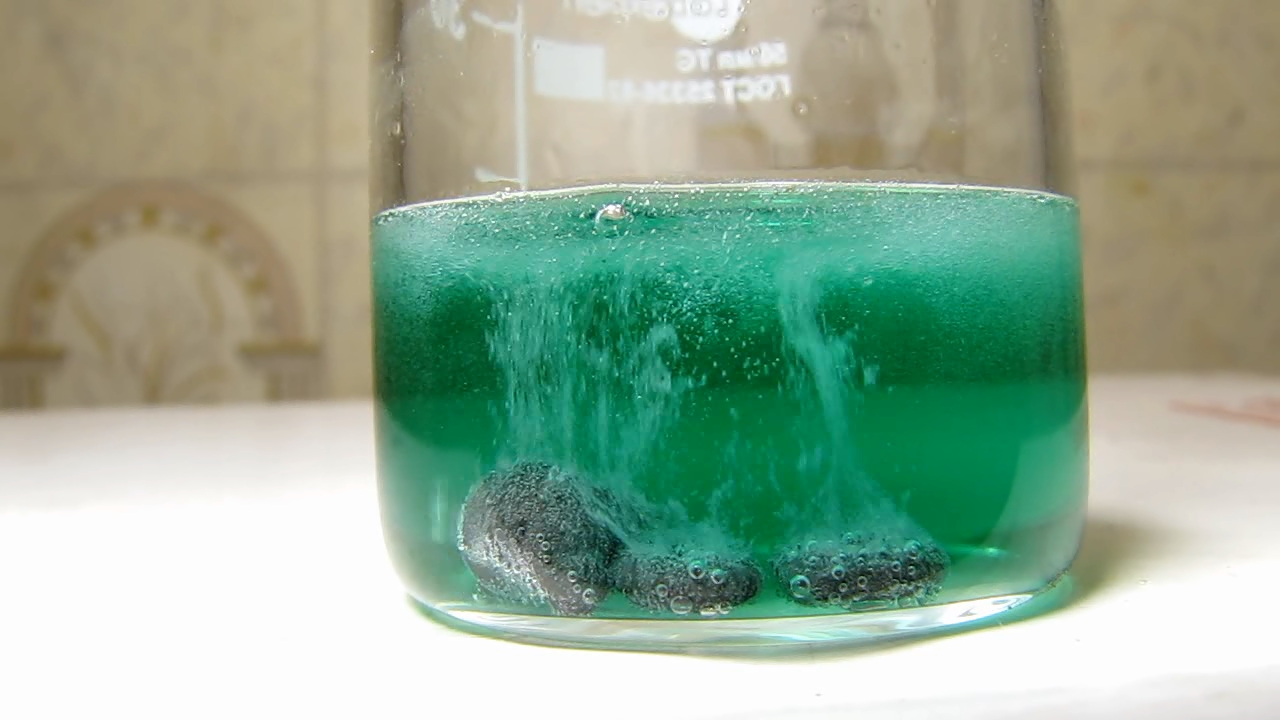
|
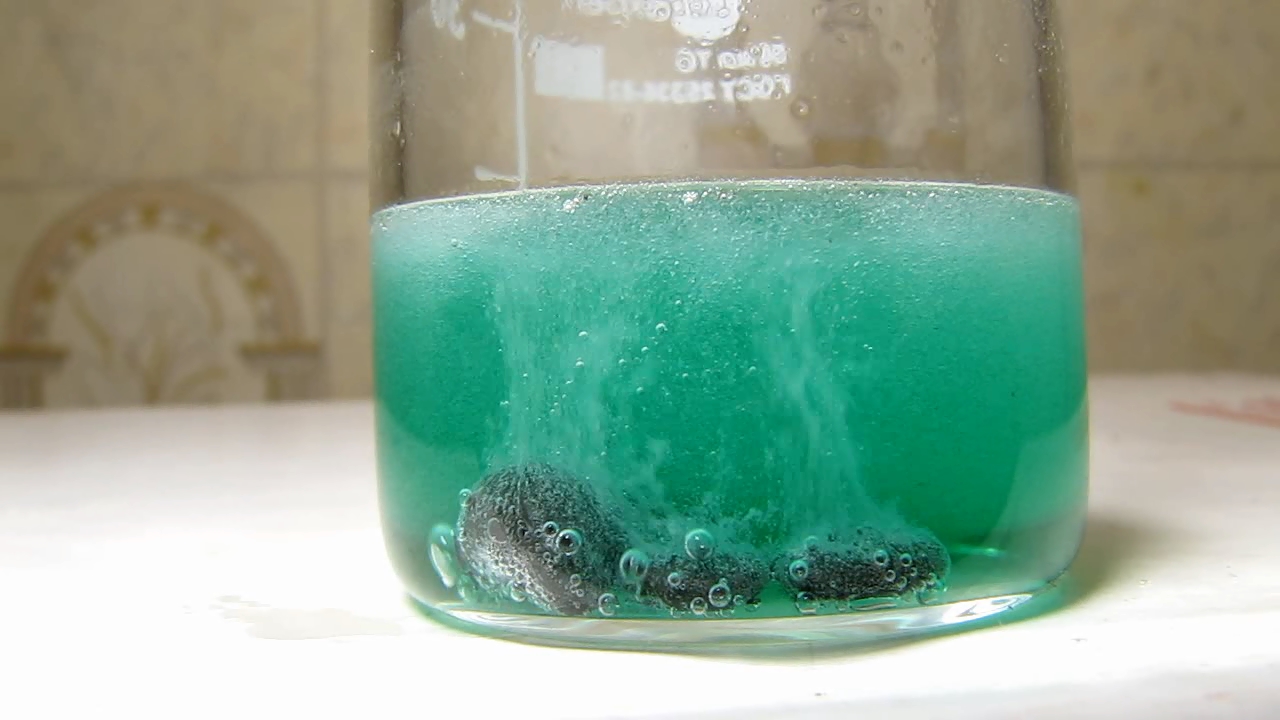
|
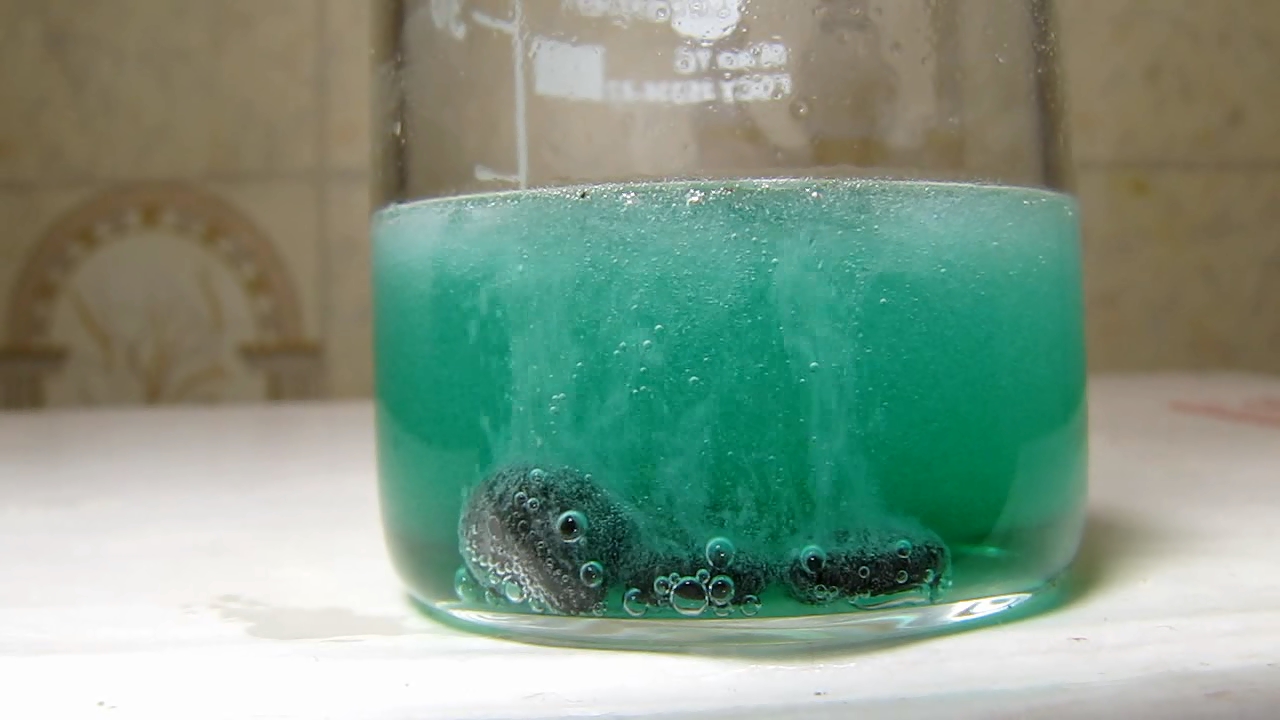
|
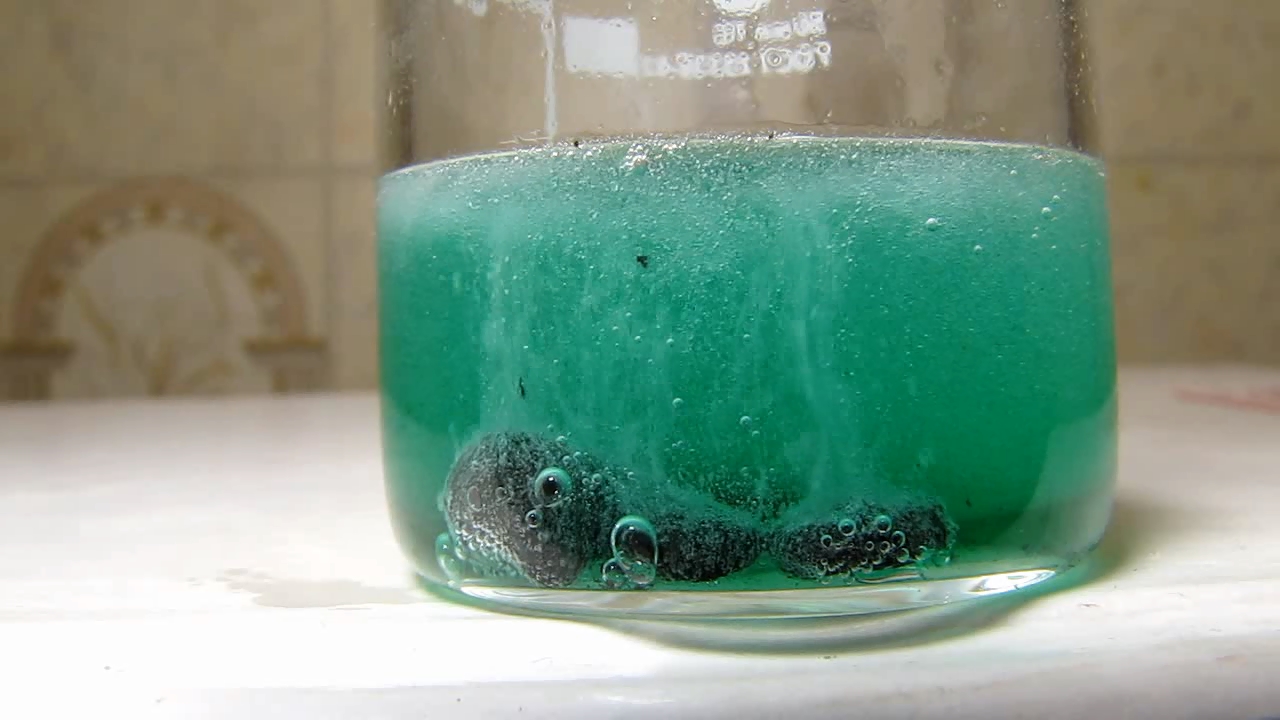
|
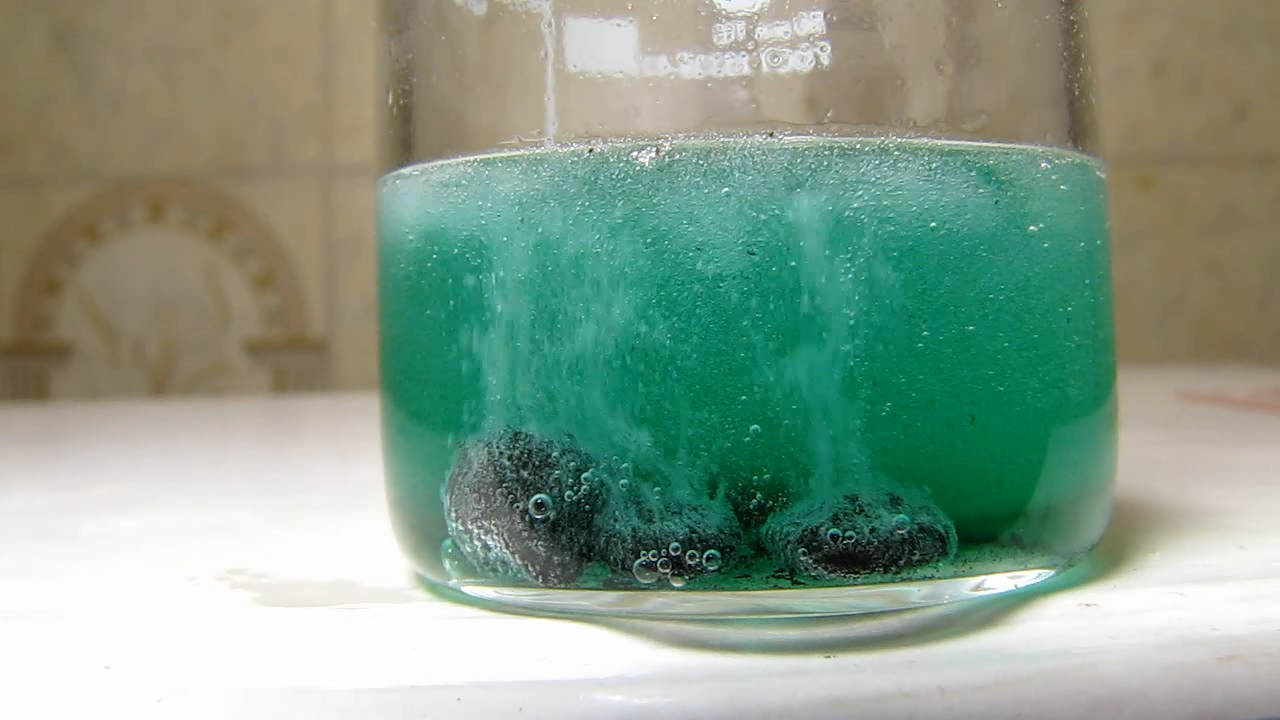
|
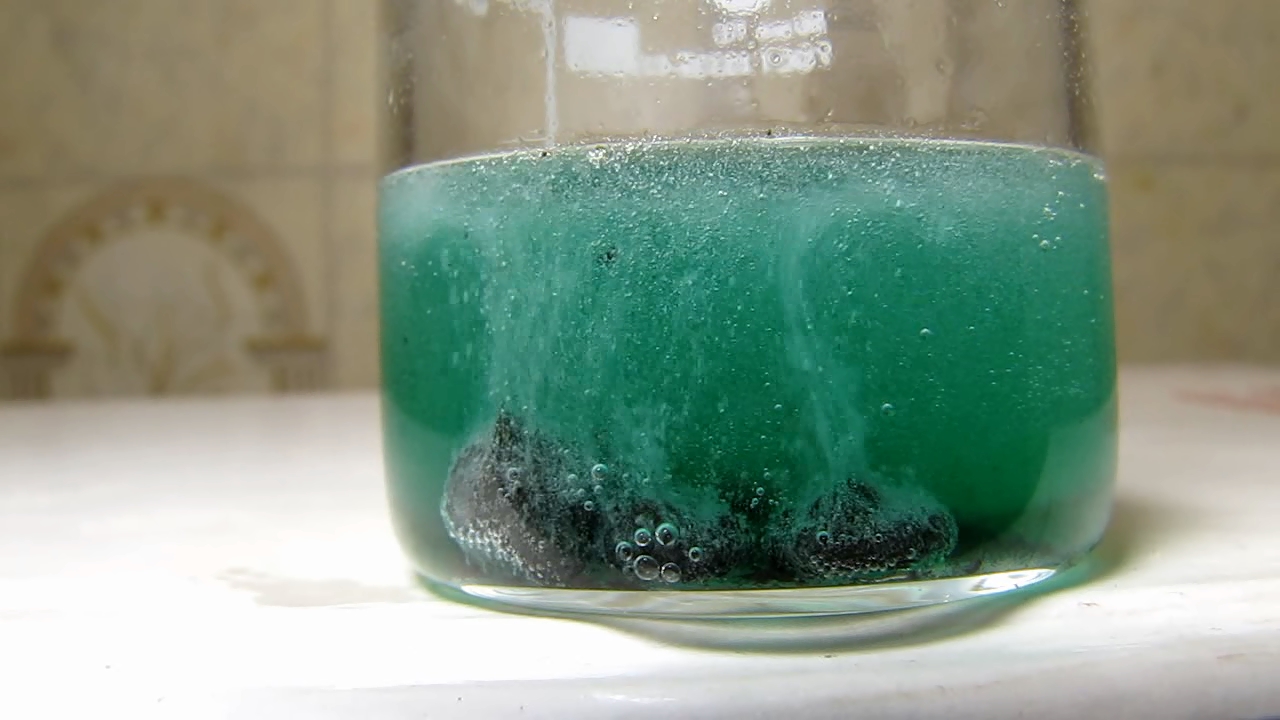
|
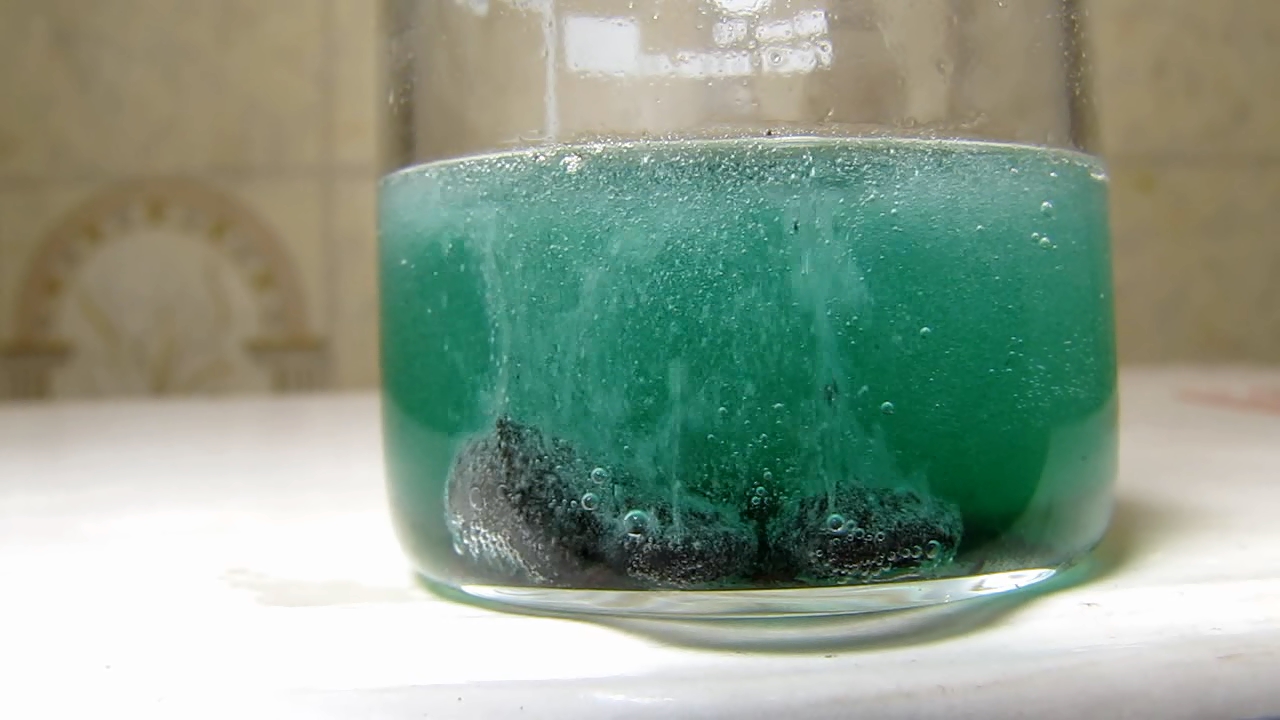
|
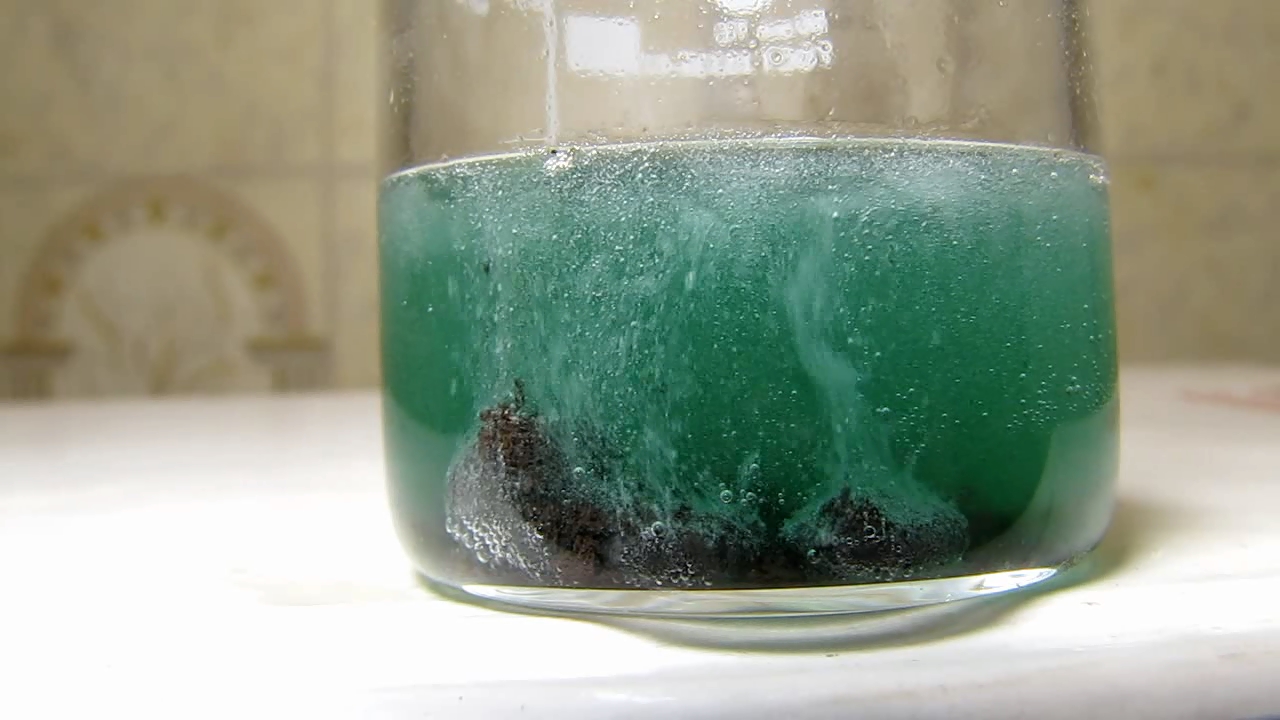
|
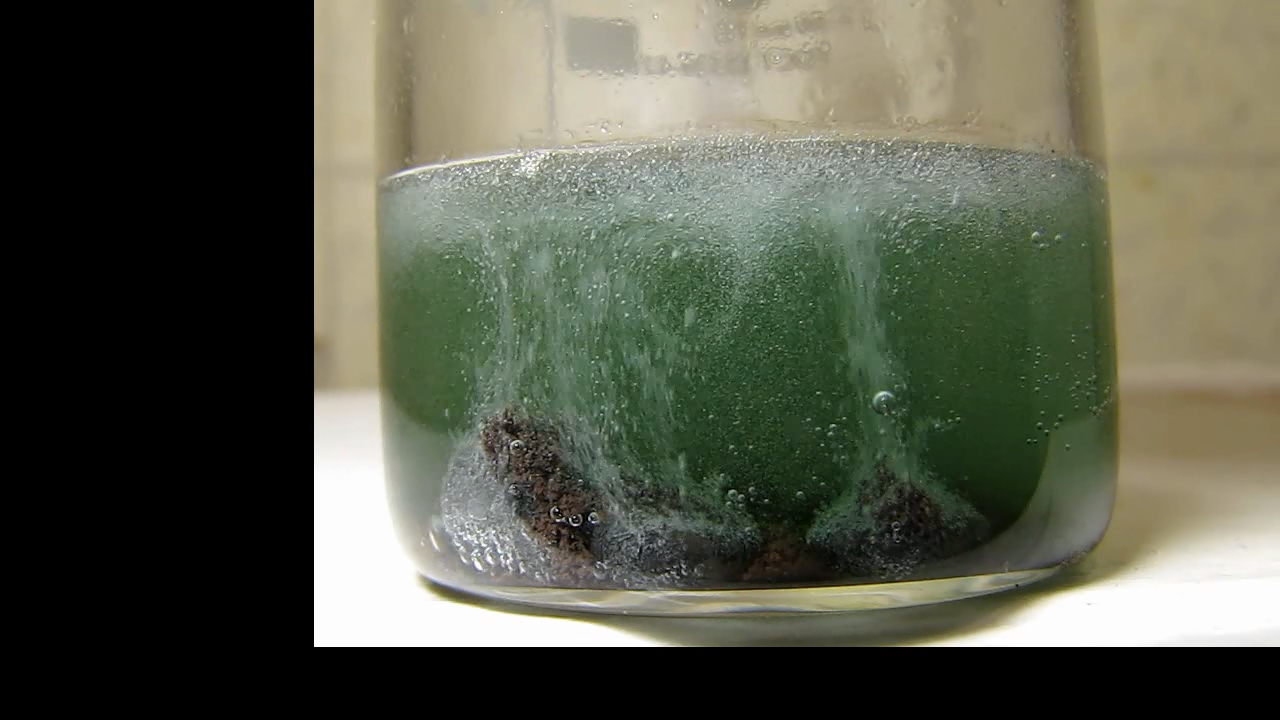
|
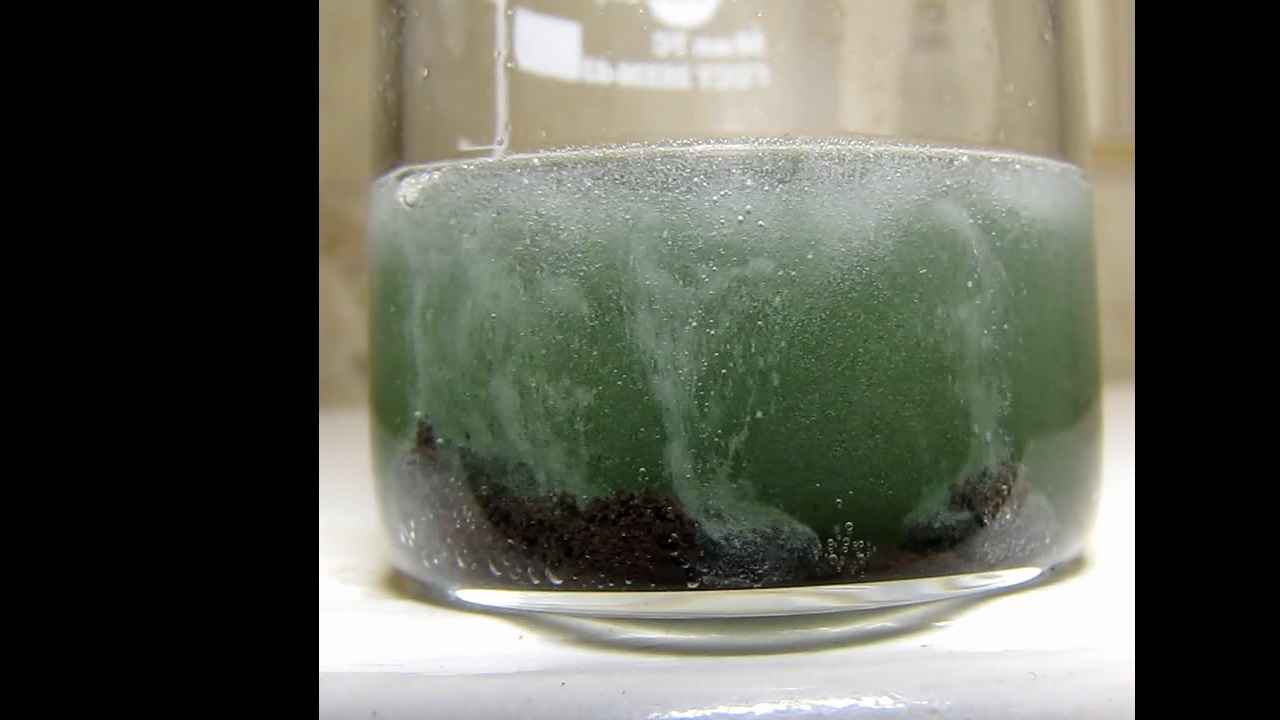
|
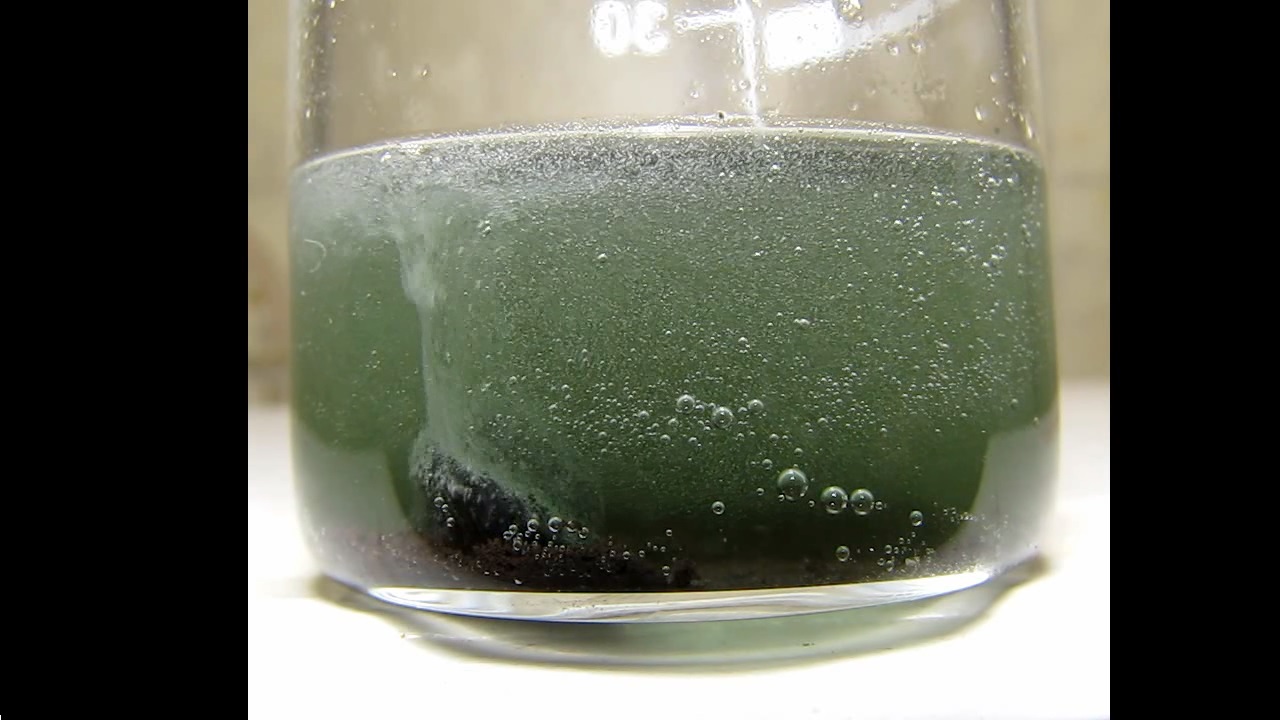
|
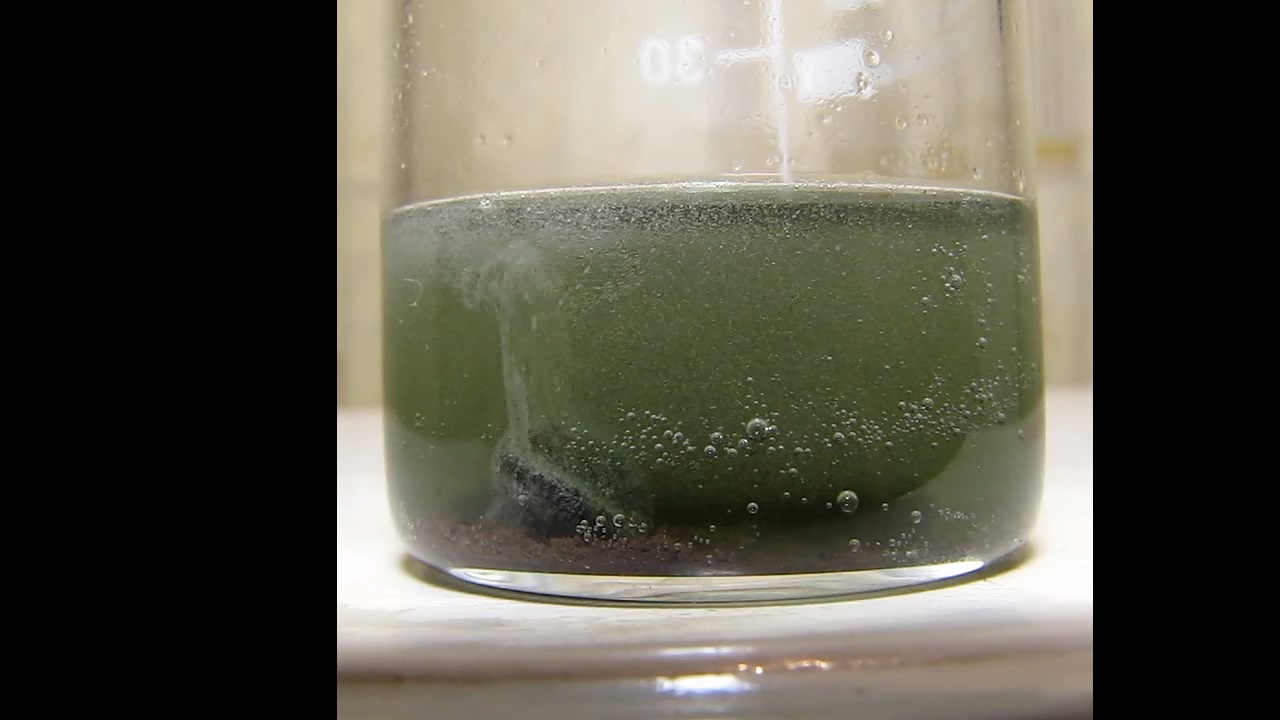
|
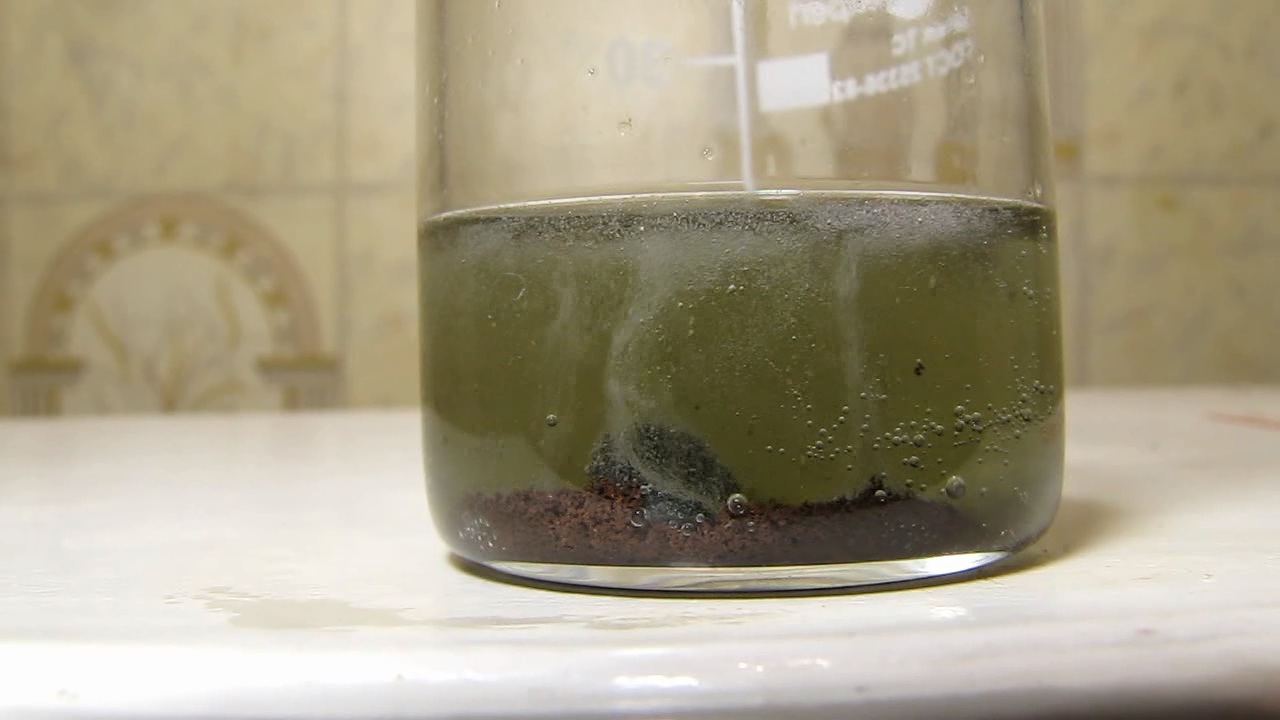
|
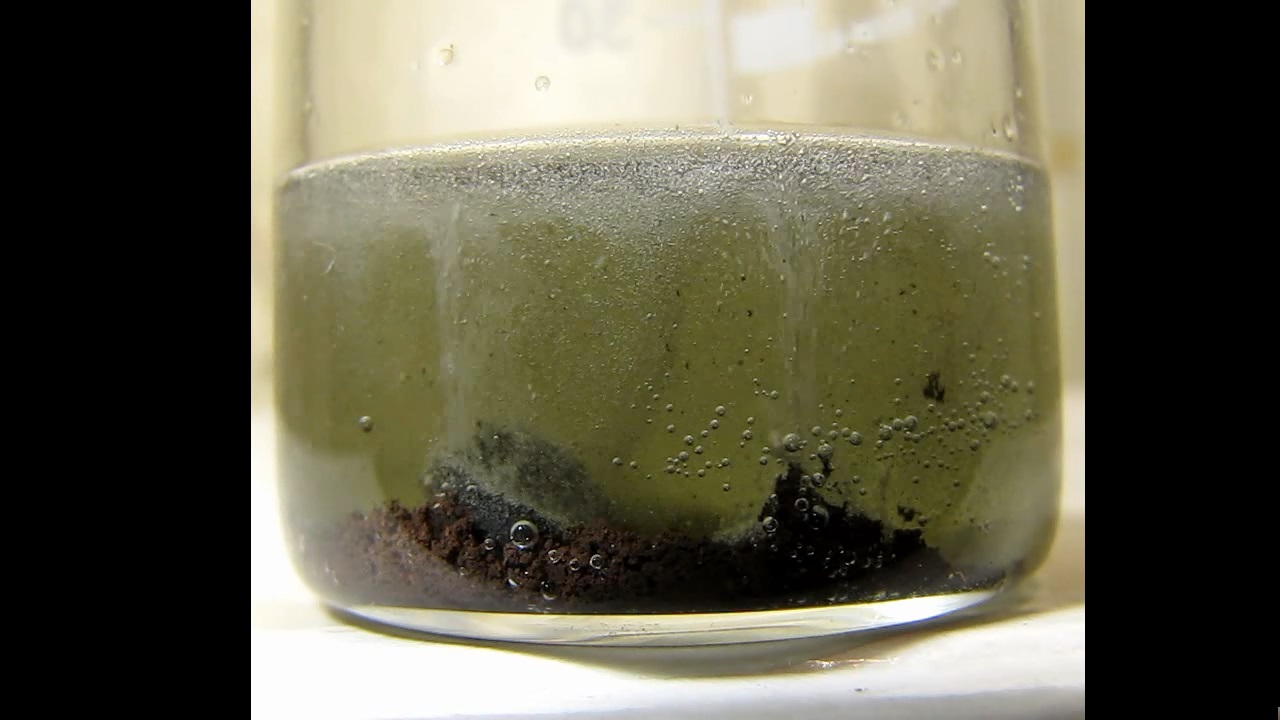
|
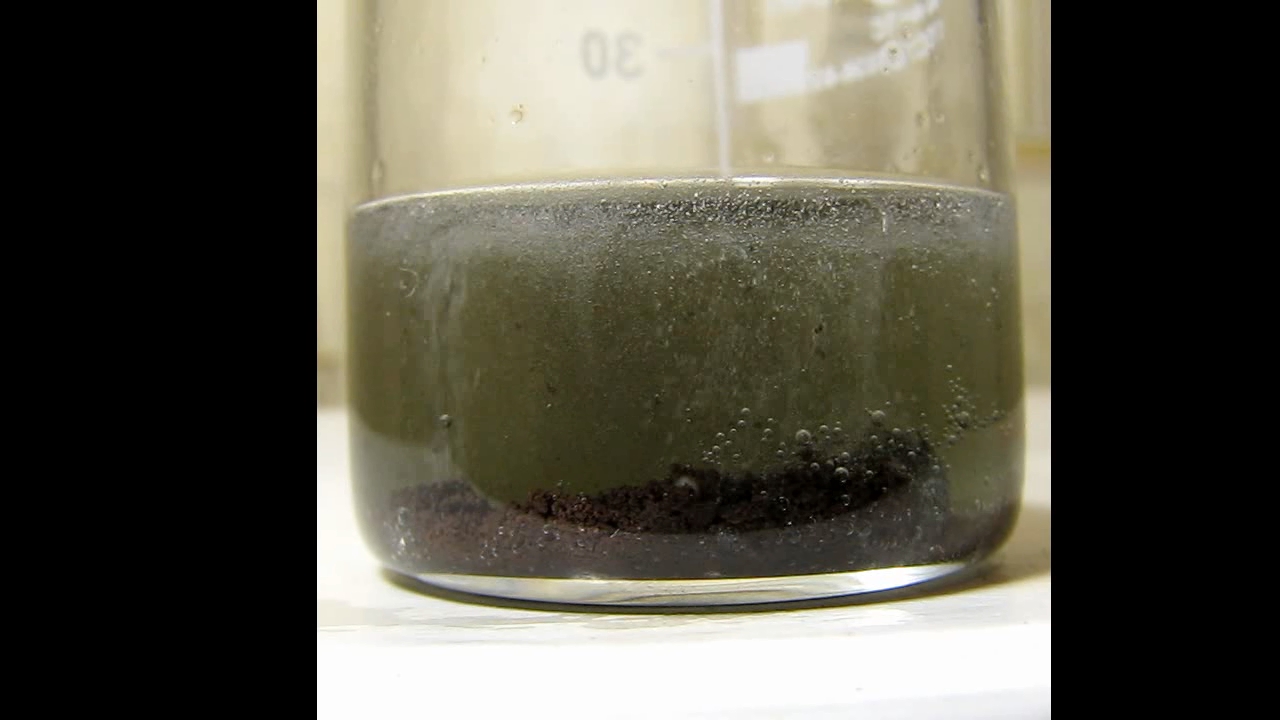
|
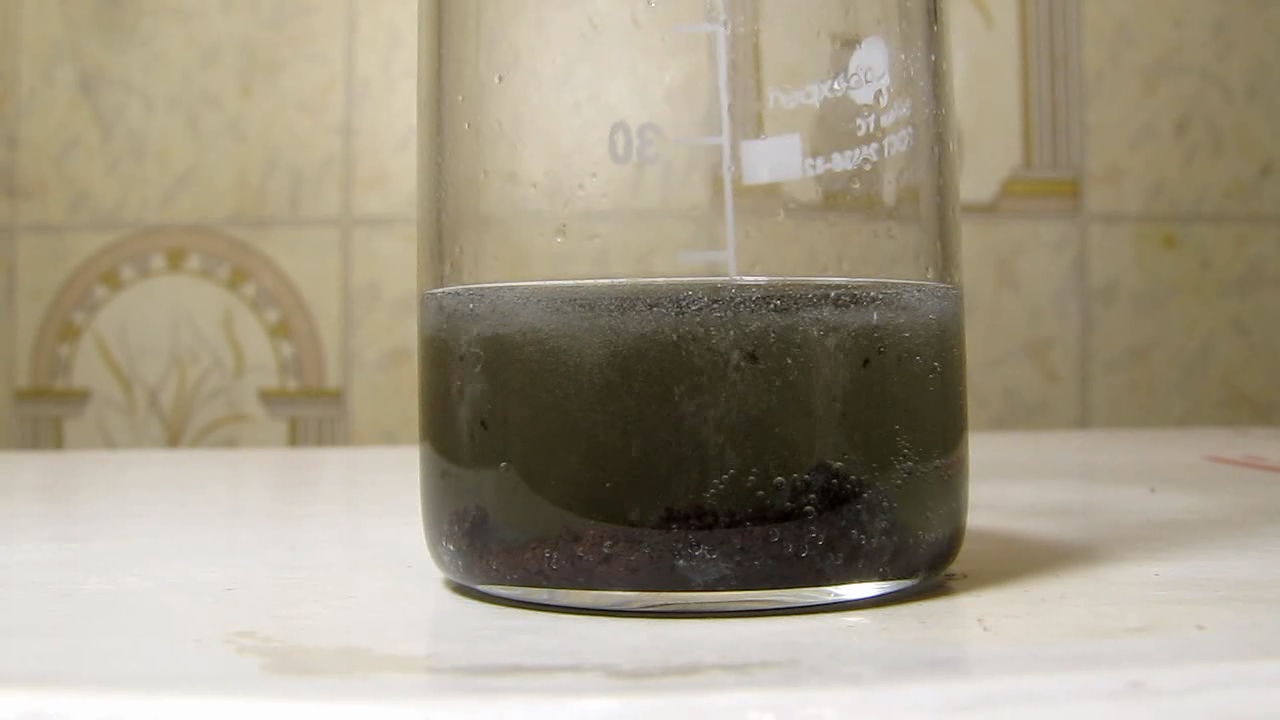
|
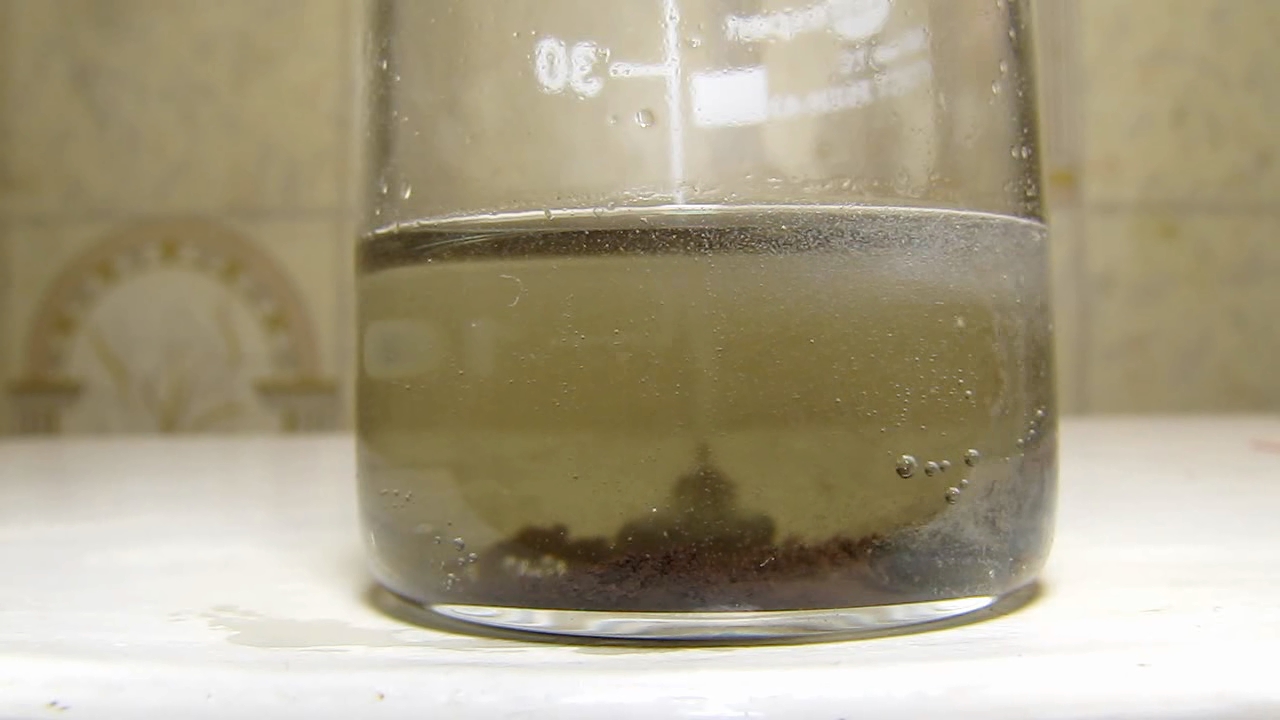
|
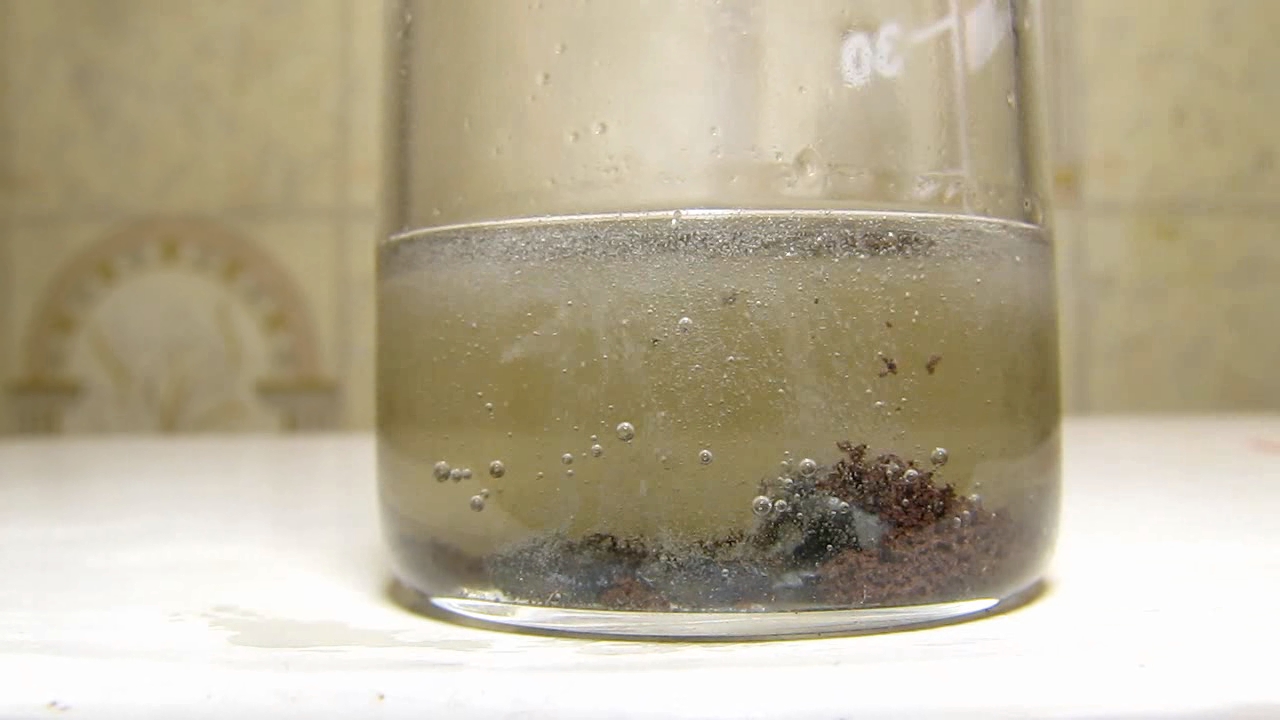
|
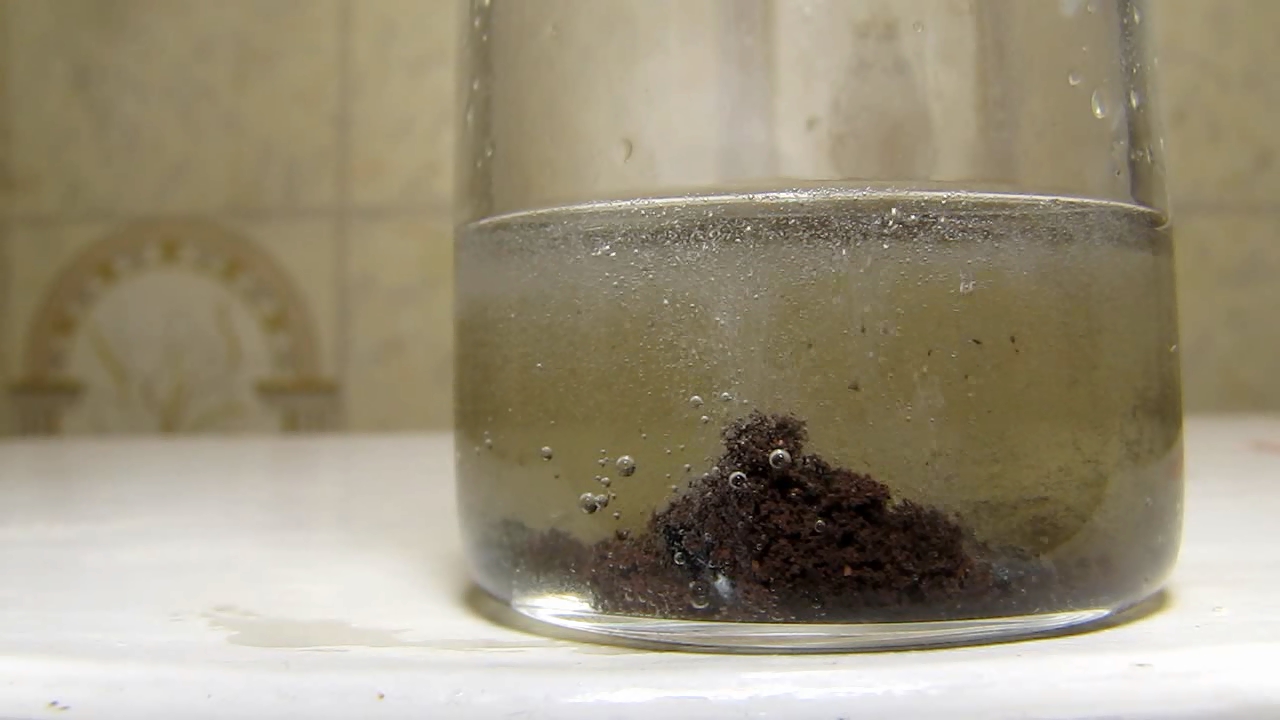
|
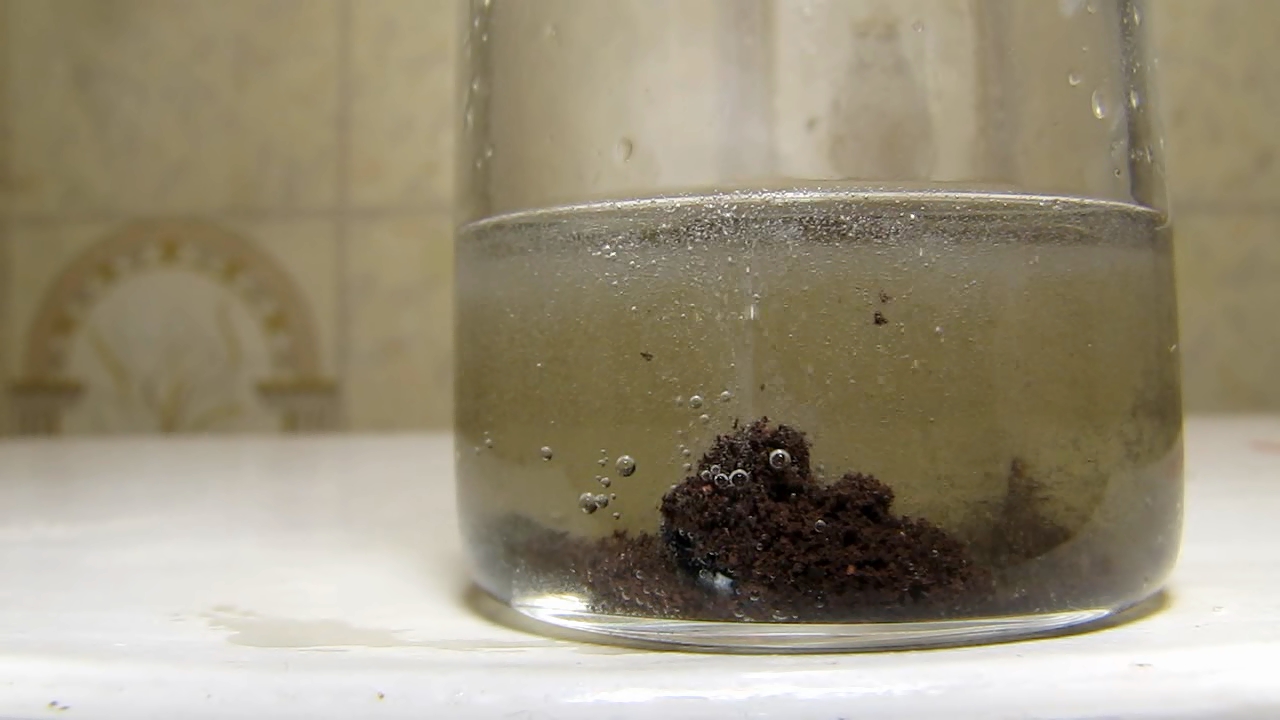
|
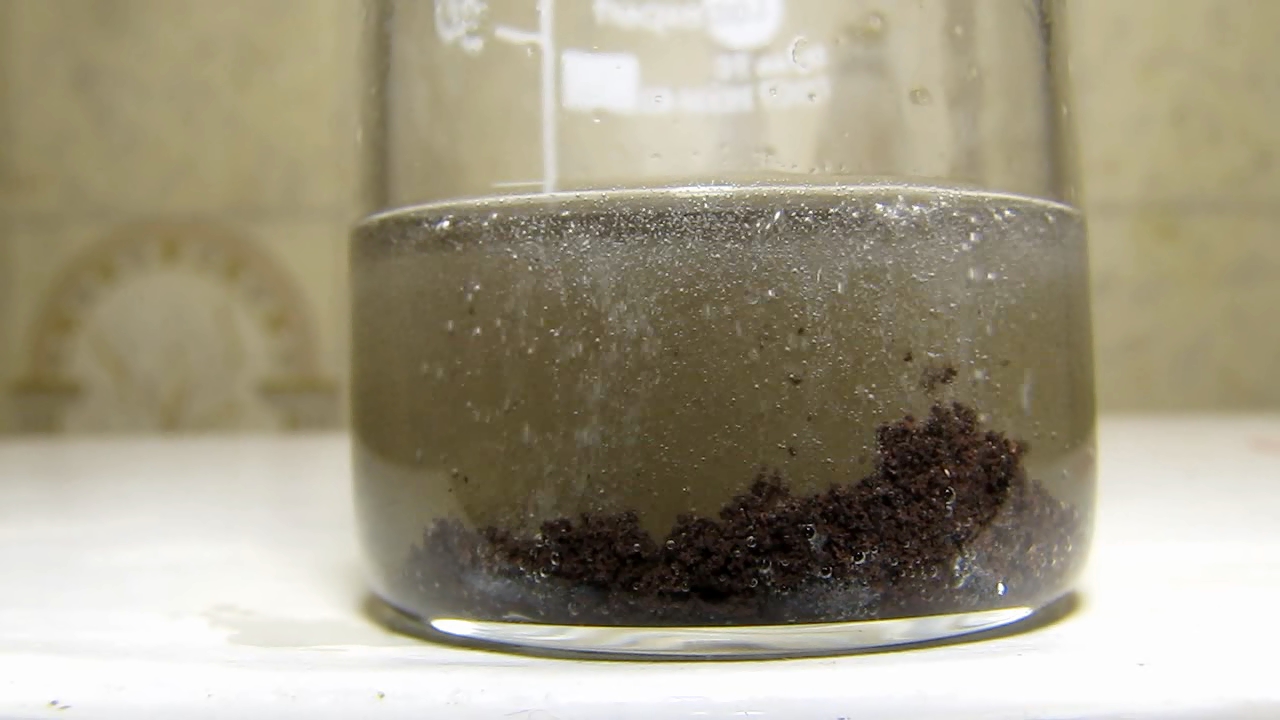
|
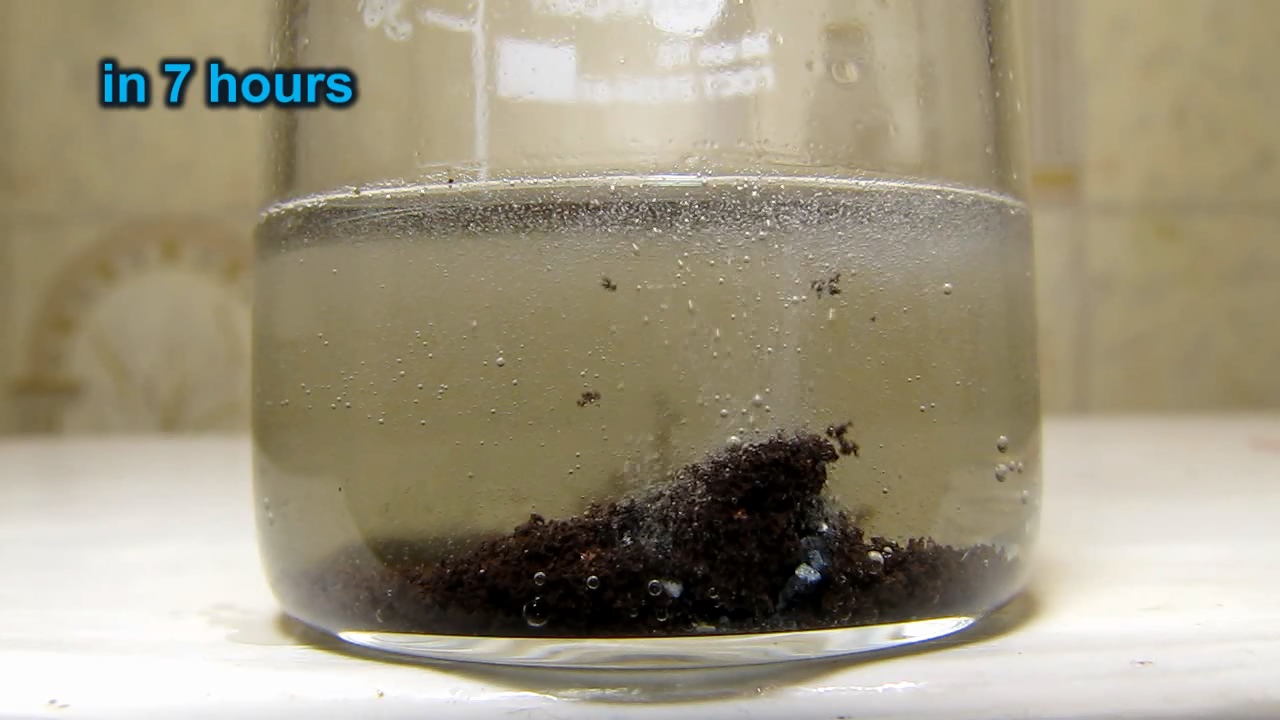
|
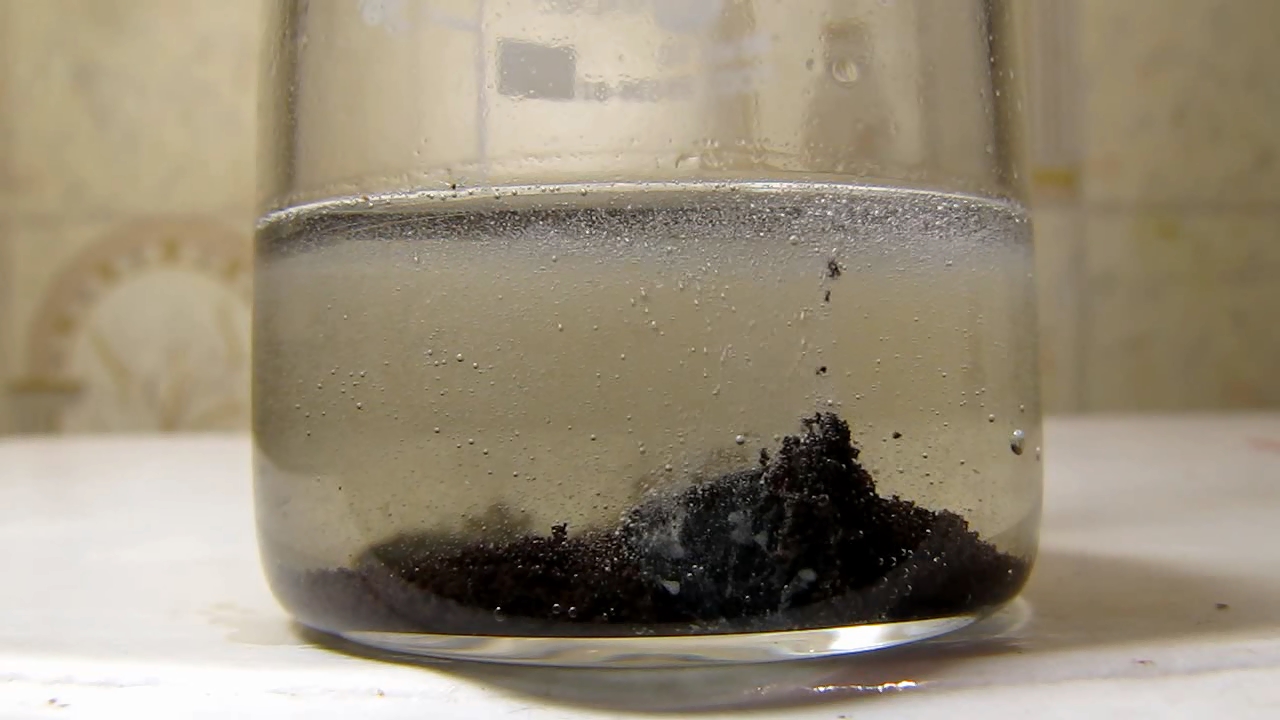
|
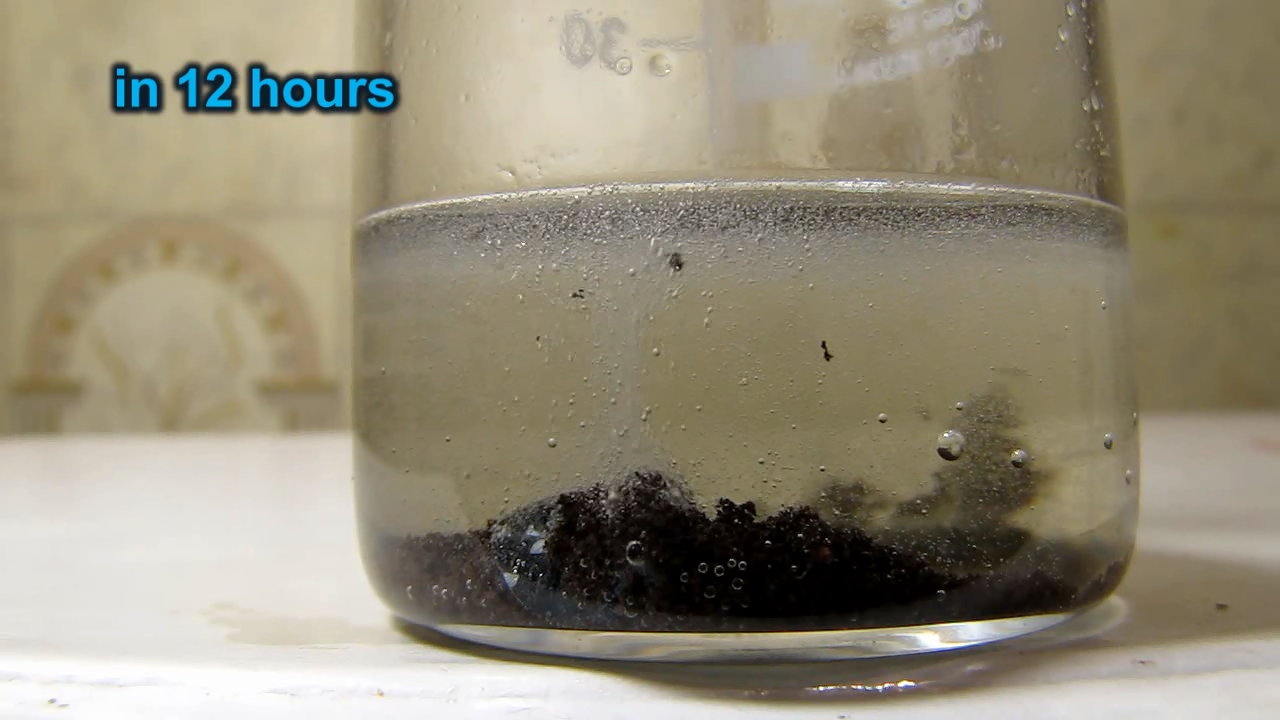
|
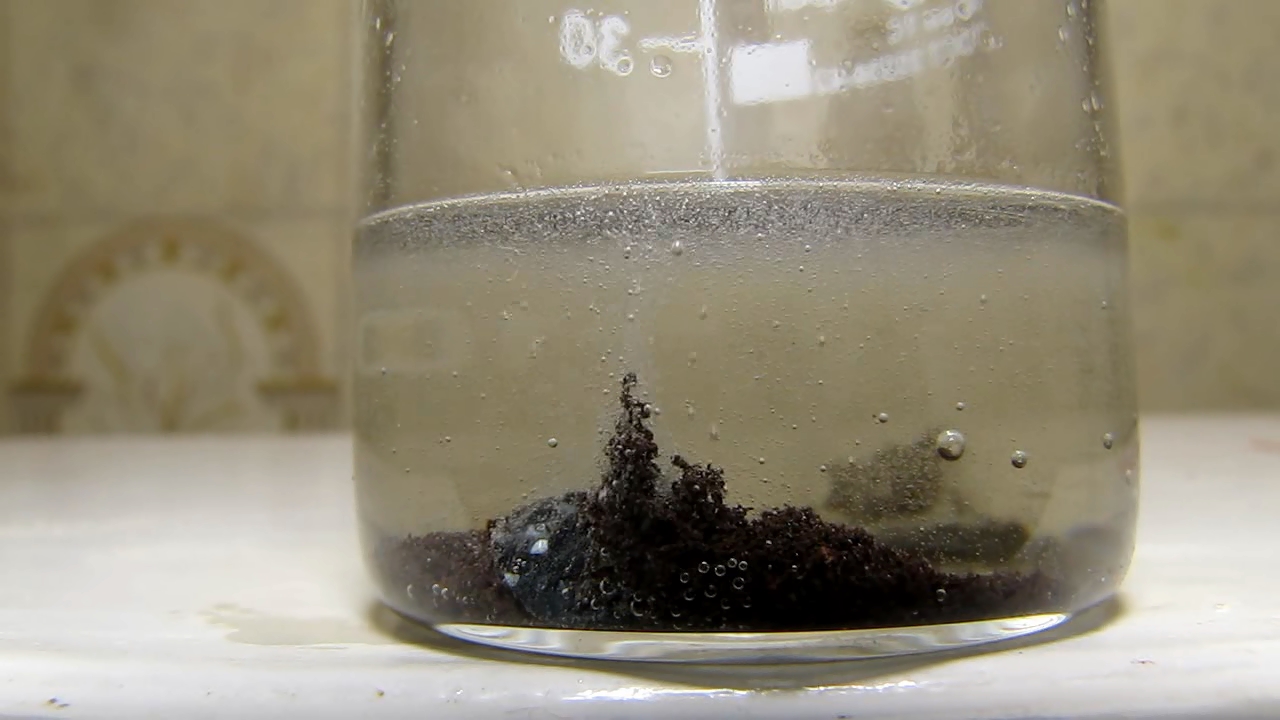
|
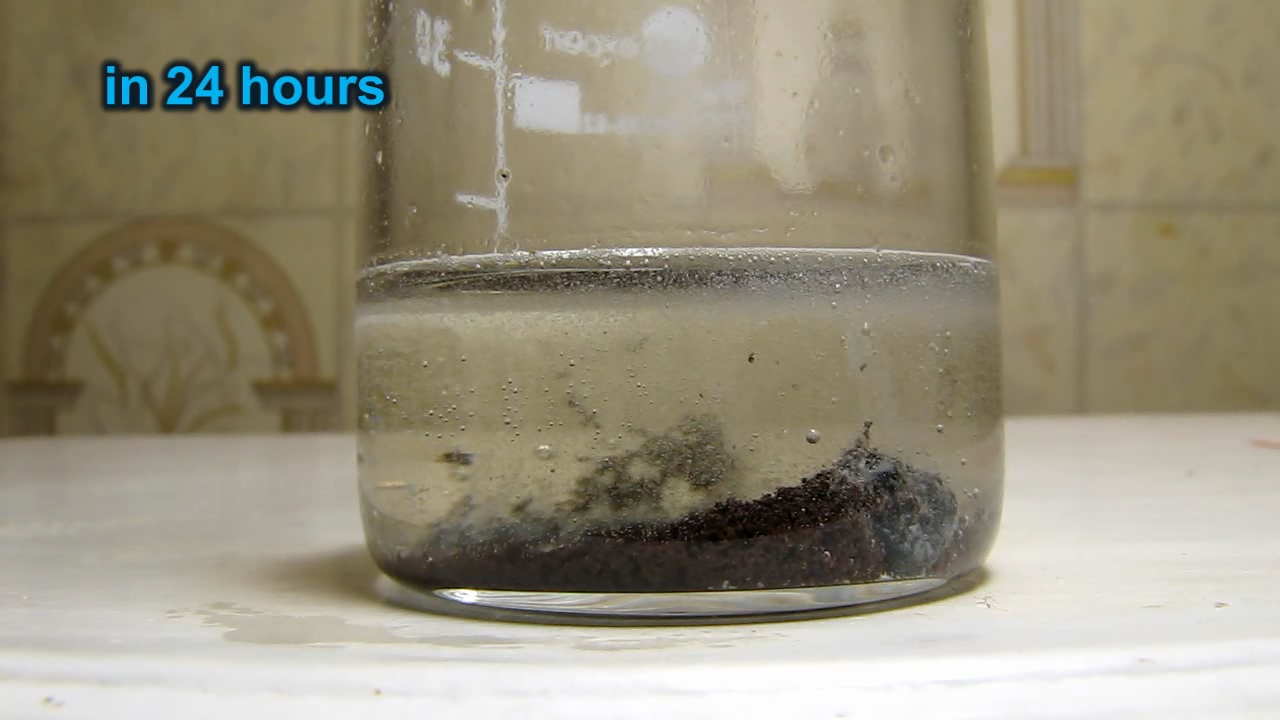
|
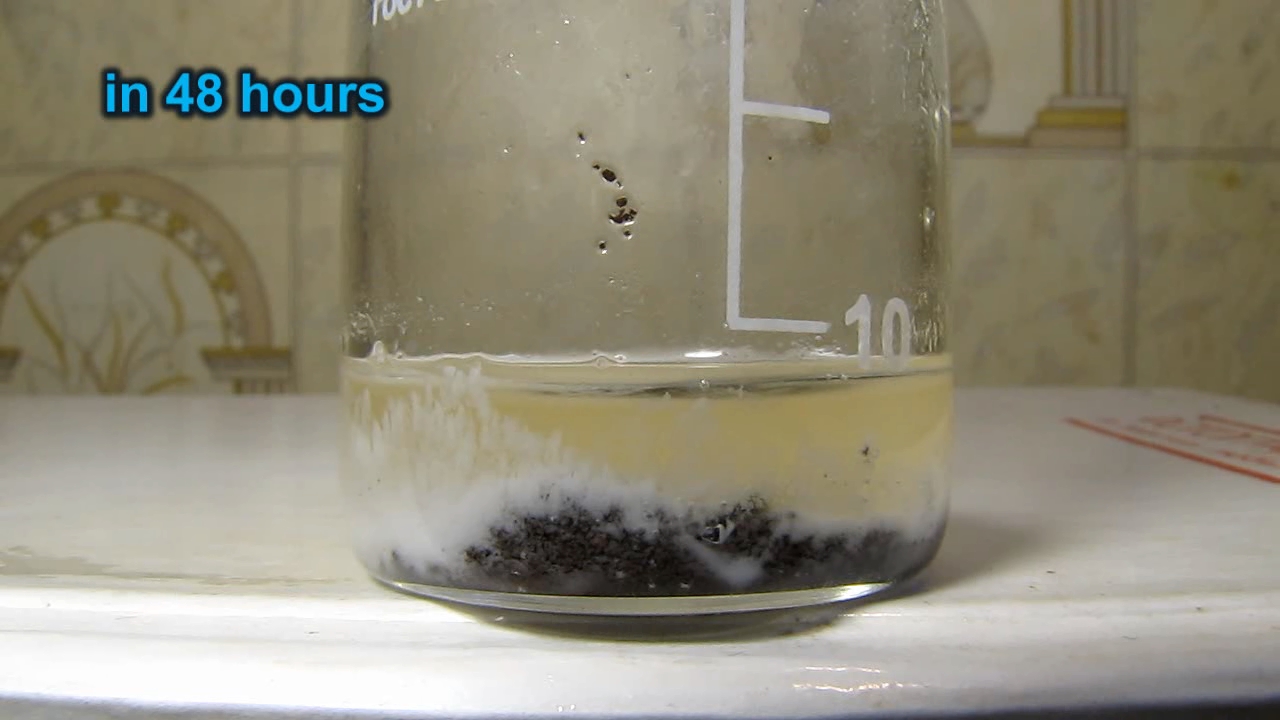
|
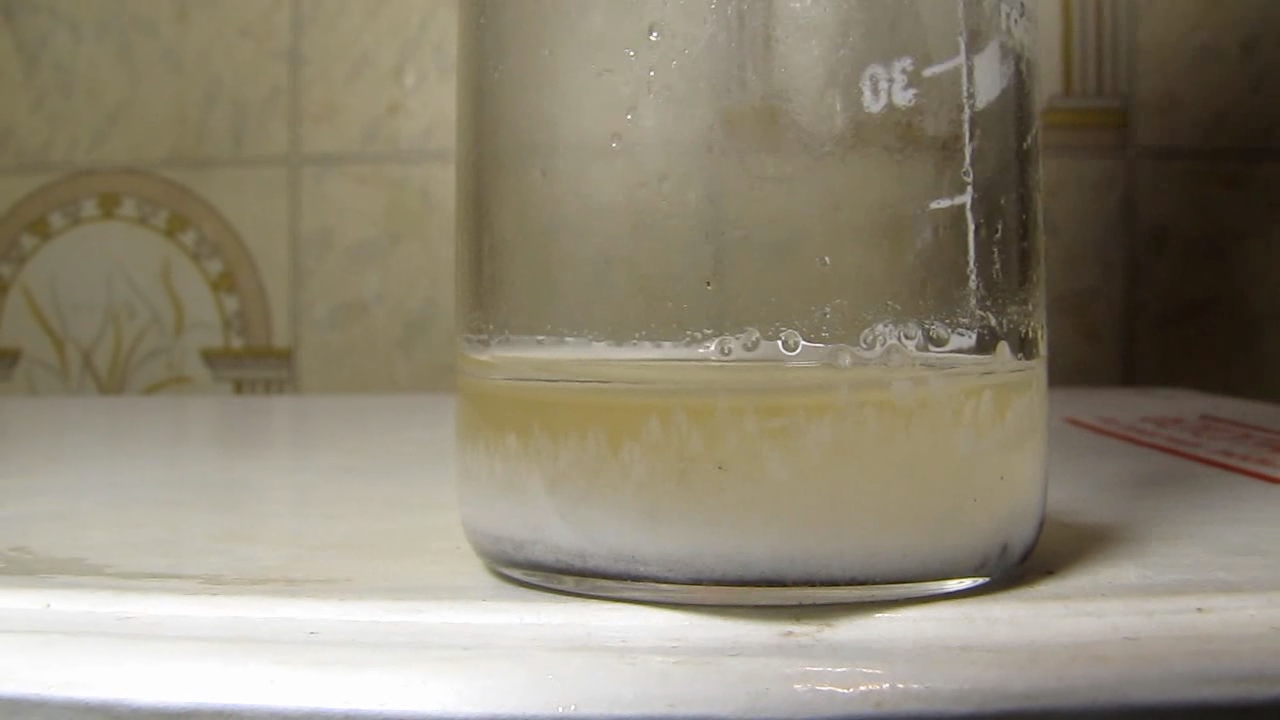
|
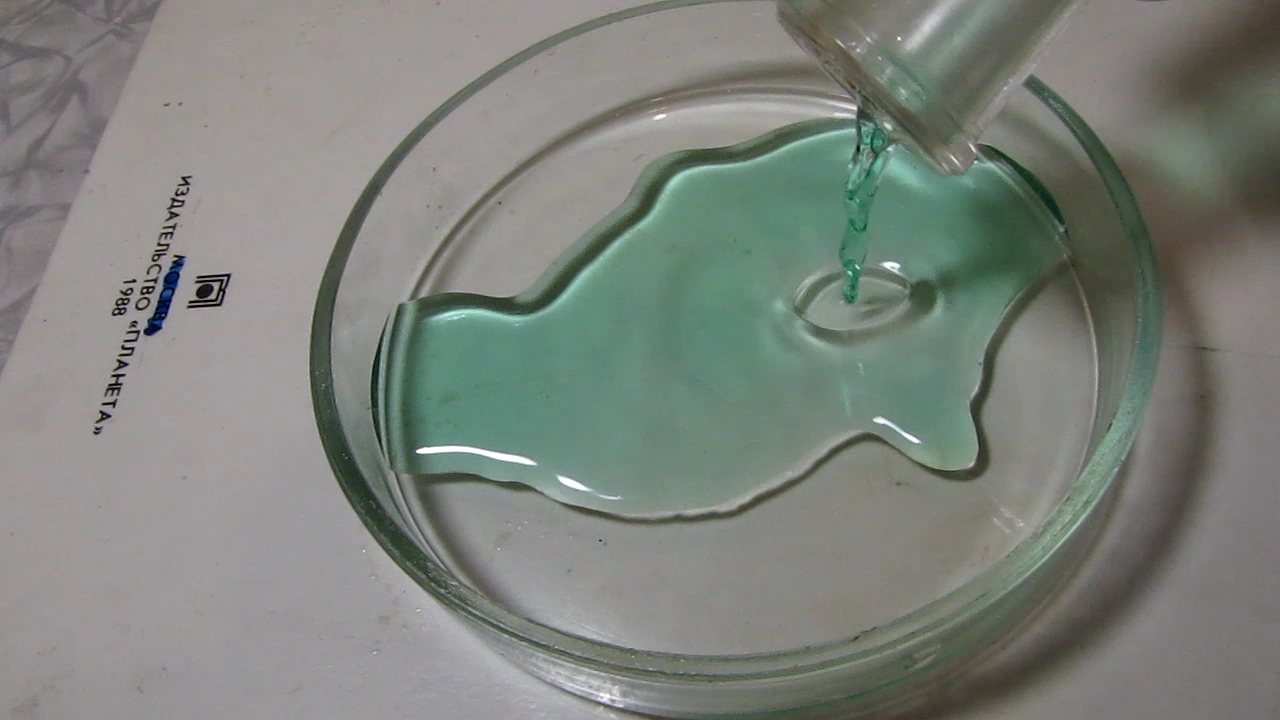
Evaporation of the copper citrate solution |
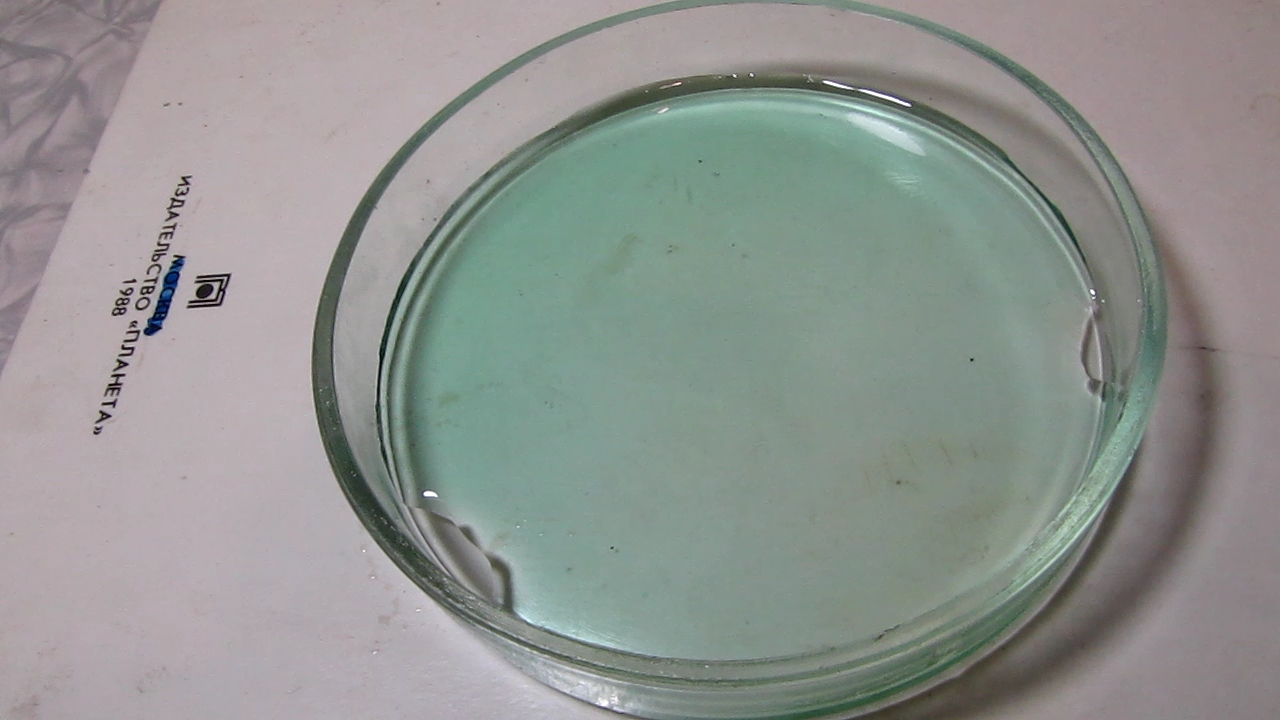
|
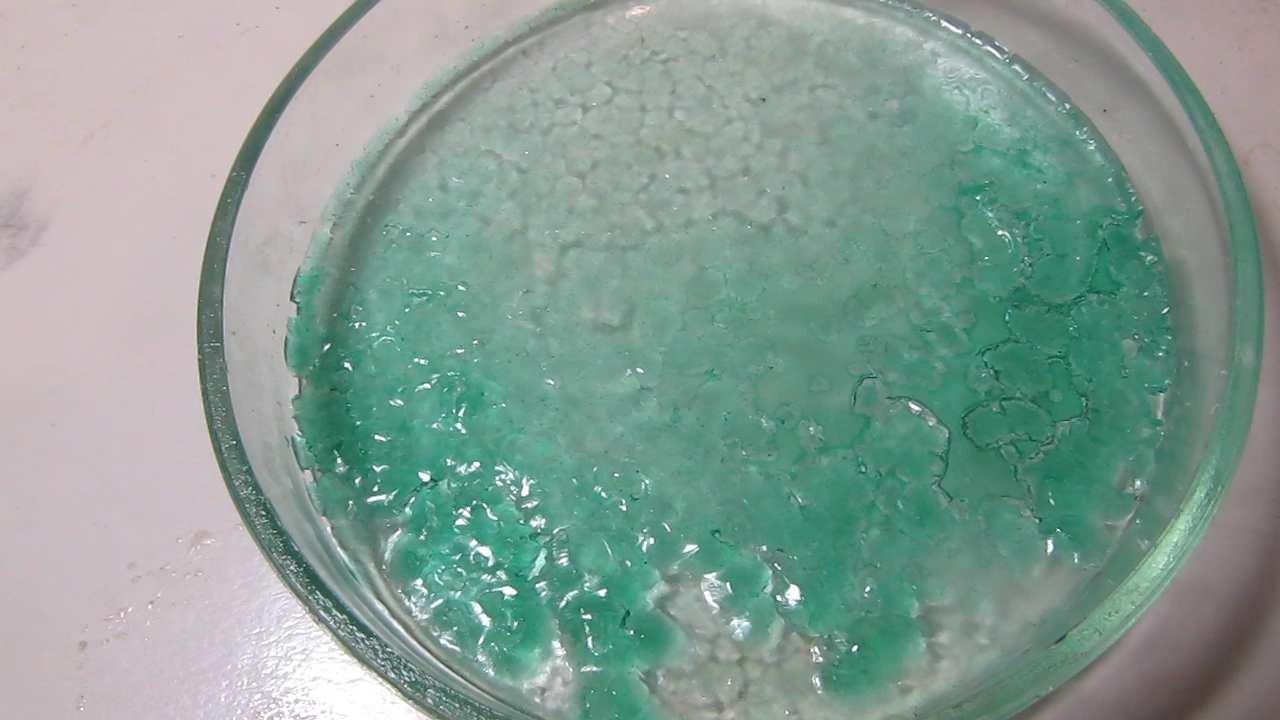
|
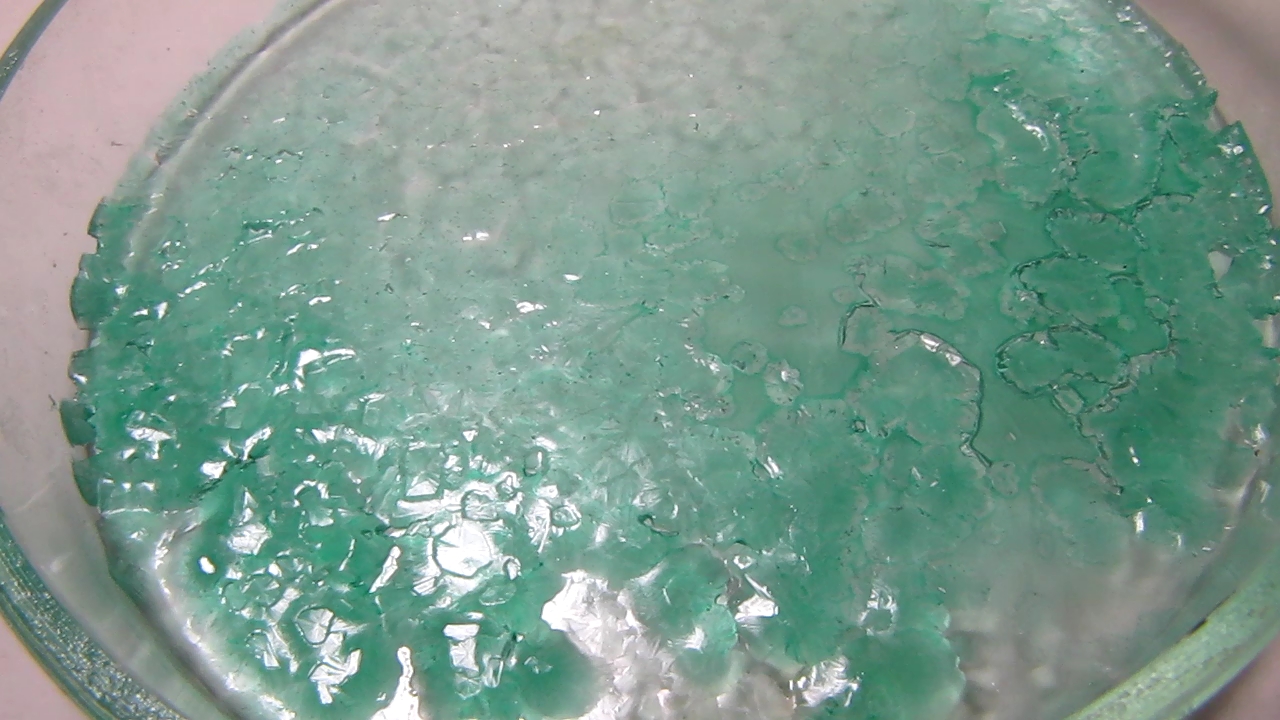
|
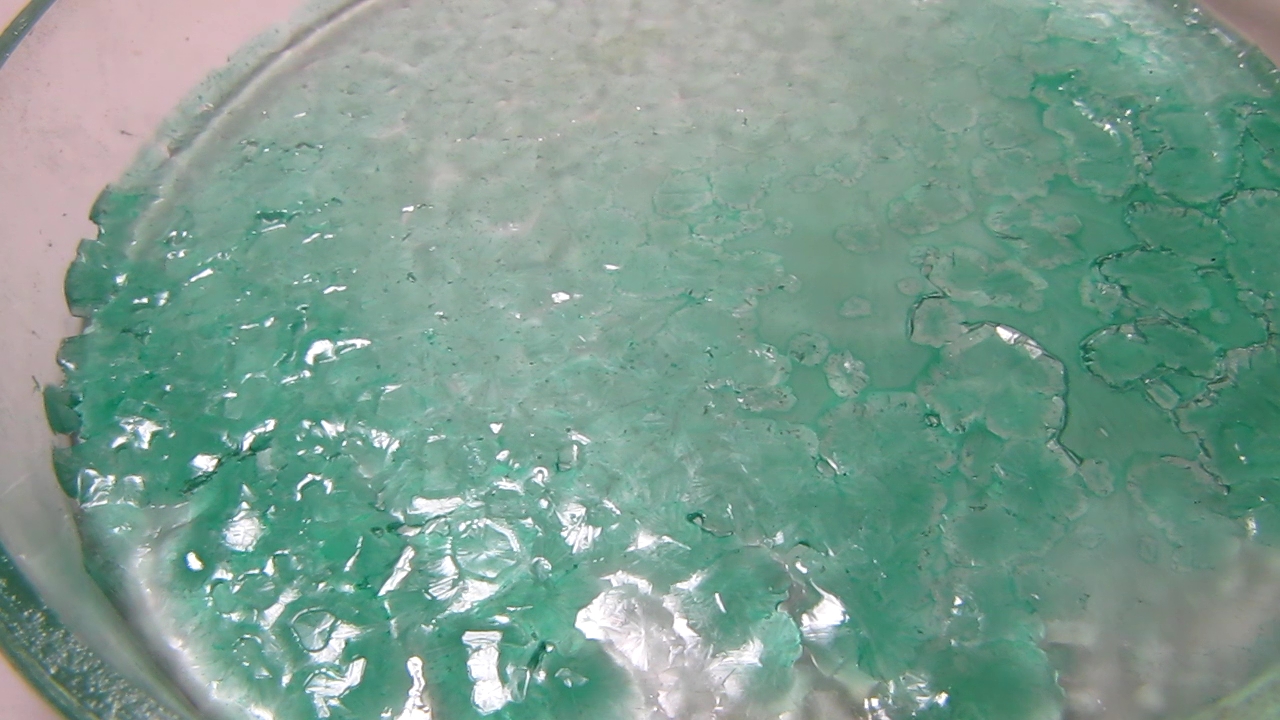
|